




BEYOND STARTING A CAREER, IT'S ABOUT PURSUING A CALLING.


Make a move that matters at dsta.gov.sg







At DSTA, you will make an impact as you fulfil your career aspirations. Are you ready to defend our future with the next wave of tech innovation?






























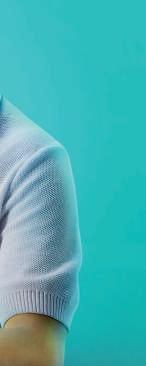

STRATEGY IN ACTION dsta.gov.sg SingaporeDSTA DSTA
MESSAGE TO THE STUDENTS
Do you know most jobs in 2030 have not been invented? Up-skilling and re-skilling are becoming more important as the world’s economy and technology changes at rapid rates. Human-machines partnership is now closer to home – are we able to co-exist and thrive in our own ways? We see more and more companies use bots in Applicant Tracking System to prescreen resume. How do we prepare ourselves and ensure that our resume stand out (see page 28-29)?
As the Career Development Centre prepares you for graduation, we cannot help but place more emphasis on the importance of self-awareness starting from your Freshmore Terms (see page 14). This career guidebook provides you practical tips, and resources to assist in your career planning and stay informed of industry trends.
We are here to support your career ambitions. Get ready for the competitive job search processes and start your job hunt together with us (see page 30-31). Building strong partnerships are important and that is why we have many career-related events for you to attend so that you have the opportunity to network (see page 8-9).
The key to success is not about having more money. Having your own business does not necessarily make you richer as you may be faced with many challenges, What makes one rich is the lifeskills which we have. Are you wary about your values and professional ethics? Do you have the critical thinking skills to solve our problems? These Lifeskills are not just a one-time exercise; they see us through a lifetime. Start building on them early!
Whether you are in your freshmore or senior term, keep exploring and continue discovering. You will soon be able to build a strong personal brand, which you can proudly call your own (see page 26-27). In this series, we interviewed two alumni who have built their own brand – their very own startups. Both Philip and Princeton were a little apprehensive when they first started, yet when they received their first deal, they were overjoyed and there has been no turning back since (see page 59-60).
We look forward to working with you in building your personal brand. All the best!

 Angelvin Parma Head, Career Development Centre
Angelvin Parma Head, Career Development Centre
PREPARING YOU FOR THE FUTURE 1 SUTD career guide 2024














SUTD Consultants Angelvin Parma, Jessica Chwee, Faith Lim Chief Editor Elliyani Mohamad Ali Editor & Editorial Dawn Yip, Alfieyah Abdullah Design & Production A’liah Abdul Rahim, Allysha Puteri Harfaz Advertising Ron Ong, Shenna Mae, The GTI Media sales team Marketing & Distribution Kelly Chin, Jenna Lau, Lydia Ng Managing Director Isaac Hee Printer Times Printer Pte Ltd 16 Tuas Ave 5 Singapore 639340 © GTI Asia Pte Ltd, March 2024 All rights reserved. No part of this publication may be reproduced by any means including, but not limited to, photocopying or storage in a retrieval system in any form without prior written consent of GTI. The views expressed in the articles are those of the authors and their publications, and do not necessarily imply that such views are shared by GTI. Whilst every care has been taken in the compilation of this publication, the publishers cannot accept responsibility for any inaccuracies, or for consequential loss arising from such inaccuracies, or for any loss, direct or consequential, arising in connection with information in this publication. CONTENTS SUTD career guide 2024 2 INSIDE THIS GUIDE Produced by (Company number: 200301978M) 2 Sims Close #05-07 Gemini@Sims Singapore 387298 T+ (65) 6294 6505 F +(65) 6294 1043 www.gtimedia.asia 14 Steps to Graduation 16 Making the Most of Your Internship 18 How Internships can Kickstart your Career 22 What Employers Look Out for When Hiring 24 Growing Your Professional Connections on LinkedIn 26 Creating Your Own Personal Brand 28 Navigating the Applicant Tracking System (ATS) 30 Paving the Way to a Successful Job Hunt 32 How to Craft an Effective Elevator Pitch 34 How to Set Your Resume Apart 36 A Guide to the Ideal Cover Letter 38 Building Your Technical Portfolio 40 Dress to Impress 42 How to Succeed in Different Job Interviews 46 Diversifying Your Network 48 Tackling Job Offers 3 Meet the Career Development Centre Team 4 Start Your Journey With Us 6 Tailored for Freshmores! 8 Creating Job Opportunities for You 10 The 2022 Graduate Employment Survey 12 Thoughts About the Career Development Centre Preparing You for the Future Getting Ready Your Career Tool Box! Advice for Your Career Journey 67 Jobs and Internships 50 Adapting to Hybrid Work 52 Adulting in the Corporate World 54 Understanding Workplace Cultures: From MNCs to Start-ups 56 Insights from an Employer 58 Alumni Speaks 62 The Glossary of Career Pathways
MEET THE CAREER DEVELOPMENT CENTRE TEAM
Reach out to the dedicated Career Development Centre (CDC) team, who are committed to supporting you on your path to career success.
Julia Tham Events and Operations julia_tham@sutd.edu.sg
Andrea Kio Events and Operations andrea_kio@sutd.edu.sg
Junice Chua Employer Relations junice_chua@sutd.edu.sg
Jackie Liew Employer Relations kuokwai_liew@sutd.edu.sg
Melissa Png Internship melissa_png@sutd.edu.sg
Faith Lim Career Coach faith_lim@sutd.edu.sg
Eleaner Loh Statistics and Administration eleanerloh@sutd.edu.sg
Elaine Sundaram Internship and Structured Internship for Master of Architecture elaine_sundaram@sutd.edu.sg
Angelvin Parma Head, Career Development Centre angelvin@sutd.edu.sg
Daniel Cheong Career Coach daniel_cheong@sutd.edu.sg
Jessica Chwee Career Coach jessica_chwee@sutd.edu.sg
Vanessa Teo Employer Relations vanessa_teo@sutd.edu.sg
PREPARING YOU FOR THE FUTURE SUTD career guide 2024 3
Left to Right
START YOUR JOURNEY WITH US
Graduate Employment Management System (GEMS)
Whether you are a freshmore deciding on your pillar choice, a junior seeking out company information and internship, or a senior finding the first full-time job, GEMS will be an essential platform for you to rely on here at SUTD. Packed with useful insights and resources to keep you updated on hiring trends, GEMS also serves another important purpose — booking appointments with your career coach. To get started, simply log in to GEMS via your EASE page at https://ease.sutd.edu.sg.
An overview of GEMS
Once you have logged in, you have access to all the features GEMS has to offer, which can be seen and accessed via the menu bar on the left. Any information on the latest news and upcoming events can be found on the ‘What’s New’ dashboard. Want to research a particular industry or company? Useful resources like Vault.com are included for you to access insightful write-ups and articles.
Profile
What better way to show off your uniqueness as a candidate than with a professional profile? GEMS not only provides you with your own customisable profile page, but you can also add links to your LinkedIn and technical portfolio. To maximise the efficiency of your profile, be sure to upload a copy of your resume and fill in all the sections provided, such as Personal Statement, Work Experience and Projects.
Jobs
If you are looking for job opportunities, you can access this page to stay up-to-date on the most recent job listings. You can raise your awareness of the current job market and fill in any gaps you have to best match your ideal employers.
Career Events & Workshops
Attended any campus company visits and recruitment talks organised by CDC? Many students have found these sessions to be immensely useful, providing them an opportunity to interact with career professionals and hiring managers to learn more about the work culture and the types of career prospects available to them. If you find yourself unsure about your own career path, you can simply sign up for any upcoming career events via the Career Events tab.






PREPARING YOU FOR THE FUTURE SUTD career guide 2024 4
Career Resources
With plenty of useful tips and resources, this is the place to turn to if you need a final check on your resume or are looking for tips on how to ace your upcoming job or internship interview. Want to know the best way to answer the dreaded ‘Tell me about yourself’ question? You can find the best answers for it here.
Document Library
Working on your resume but unsure of where to begin? You can find a sample cover letter and resume here, provided by CDC, which you can simply download and edit as you see fit. Do not just copy from the samples word-for-word though, lest you find your applications to be too similar to that of your peers. Moreover, when writing your resume, be sure to apply the AAA (Action, Amplify, Achievement) format that you have learnt in UPOP!
Mock Interview
Online interviews have become increasingly popular among companies, particularly through platforms like HireVue. The Mock Interview feature can help you get familiar and more comfortable with these by letting you try out practice interviews for different job positions. If you want to get a second opinion on your interview performance, you can even share your attempts with anyone, including your friends and family!
Motivational Appraisal of Personal Potential (MAPP)
Have you ever wondered why you might find yourself struggling to do one task, but breeze through others? This is because we are all wired differently, with different interests and values shaped by our own experiences. Using MAPP helps to identify your true motivations towards work and allows you to match yourself to job categories to see where you best fit. You may book one session with the Career Coach for an assessment.
Set a “date” with your Career Coach
Apart from their resume critique or mock interview sessions, you can work with your coach to get their insights and strategies on how you can kickstart your career planning. Looking for feedback about your LinkedIn profile? We have this service for our students as well.
Still on the fence about that appointment? Contrary to popular belief, using the services at the CDC is not seen as being ‘needy’. In fact, more than 500 appointments were made in 2023 — meaning that at least one session was held for a student every day!
Also, if you are on the go, you can download GEMS’ mobile app on your iOS/Android phone by searching “Symplicity Jobs and Careers” on the app store.





PREPARING YOU FOR THE FUTURE SUTD career guide 2024 5
TAILORED FOR FRESHMORES!
Undergraduate Practice Opportunities Programme (UPOP)
The Undergraduate Practice Opportunities Programme (UPOP) is designed to develop career readiness among SUTD undergraduates. With a wide range of practical and experimental sessions, conducted by Career Coaches and Professional Consultants, students can acquire the relevant career skills they need to navigate the job market upon graduation. The students are required to complete nine UPOP Essential Modules to be better prepared for upcoming internships and the corporate world.
UPOP Essential Modules and Advanced Modules
Year Jan - Apr Sep - Dec May - Aug
Freshmore (Term 1)
• Freshmore Welcome Tea
Essential Module:
• E01: DYSUTD
Year 1/2
Year 2/3
Freshmore (Term 2)
Essential Modules:
• E02: The Art of Communication
• E03: Brand YOU: How to tell your story & create your personal brand
Sophomore (Term 4)
Essential Modules:
• E05: Showcasing Your Skills: Resume & Technical Portfolio
• E06: Ace Your Interview
• E07: The Super Intern with the X-Cultural Factor
Activity:
• Career & Internship Fair
Year 3/4
Junior (Term 6) Internship / Exchange
Activity:
• Career & Internship Fair
Vacation/Summer Programme
Sophomore (Term 3)
Essential Module:
• E04: LinkedIn Up
Junior (Term 5)
Advanced Modules:
• Nailing the Assessment Centre
• Breaking the CASE
Vacation/Exchange/Internship
Activity:
• Industry Night
Vacation / Internship / Summer Programme
Essential Modules:
• E08: Job Search Strategies
• E09: The Art of Persuasion & Negotiation
Advanced Modules:
• • Nailing the Assessment Centre
• • Breaking the CASE
Year 4
Senior (Term 8)
Activities:
• Career & Internship Fair
• GradConnect
Capstone
Senior (Term 7)
Activities:
• E-Resume Book for Graduating Seniors
• Industry Night
Capstone
UPOP Nine Essential Modules
DYSUTD: Design thinking is a widely used process for product and service designers to create user-centric solutions. Find out how you can apply these concepts to yourself by building, designing and creating a meaningful journey here at SUTD and beyond!
The Art of Communication: This workshop will help boost your confidence so you can network more easily and enjoy doing it! Meet and connect with people who could be pivotal to your career — be it a potential hiring manager, knowledgeable mentors or even investors for your future start-up!
Brand YOU: A good story can be both moving and inspirational. Learn how to tell compelling stories that not only create an impact but convince your audience to take the desired action.
LinkedIn Up: Become your own career influencer! Enhance your professional presence online and harness the power of LinkedIn. Develop a plan to connect with influential people within your discipline and establish your brand, opening up opportunities to get into your dream career!
Showcasing Your Skills: Build an impressive resume and technical portfolio to wow recruiters and hiring managers by showcasing th best of your skills and strengths.
Ace Your Interview: With technology, interviews are no longer just conducted face-to-face. At times, it does not have to be real-time too!
Understand the different dynamics and expectations of each type of interview. Learn how to stand out and pick up the best practices to help you win in any kind of interview.
The Super Intern: Utilise tips and strategies to become the best intern you can be! Develop techniques on how you can break the barrier of diverse cultures in a multi-cultural environment.
Job Search Strategies: Looking for a job does not have to be a daunting and time-consuming task. Learn how to better invest your time in activities that can help you maximise results. Knowing effective strategies for job-hunting will go a long way in getting that job you want. The Art of Persuasion and Negotiation: Knowing how to negotiate is an important skill at work. Pick up on effective techniques on how you can persuade and influence more effectively so that you can work out solutions that benefit everyone.
Advanced Modules often have smaller class sizes; thus registration is based on a first-come-first-served basis and a nominal fee of S$10 is payable upon registration. UPOP Advanced Modules are strategically introduced to enhance students’ career readiness.
PREPARING YOU FOR THE FUTURE SUTD career guide 2024 6
Freshmore Welcome Tea
All new freshmore students are invited to attend this session during Term 1 to learn more about the services that CDC offers as we believe that career planning is best done early. This includes sharing the timeline of our UPOP, internships and how to start preparing for their career hunt. In addition, you are encouraged to approach the Career Coaches to discuss your future career plans.
Forerunner
This opportunity is open to all students and CDC will connect you to the mentors of your chosen industry. Over four months, this will be a one-on-one mentorship, where the student will gain insider information on your chosen industry, and advice and guidance on your preferred career path. You may even potentially expand your professional network with help from the mentor, such as referrals to jobs or internship positions. With all these benefits, forerunners can provide all students with a clearer career trajectory and better confidence for the journey ahead. Applications start in January, so do not miss the chance to sign up!

PREPARING YOU FOR THE FUTURE SUTD career guide 2024 7
CREATING JOB OPPORTUNITIES FOR YOU
Career and Internship Fair
The Career and Internship Fair (CIF) is a significant event in SUTD’s annual calendar of activities, providing exceptional opportunities for both students and employers. This event occurs annually in the first quarter, shortly after the start of the academic term.
What truly distinguishes our Career and Internship Fair is the participation of a diverse group of employers, numbering over 100, representing various sectors and industries. This diversity ensures that our students are exposed to a wide range of industries, including technology, engineering, financial services, healthcare, and more.
This fair serves as an excellent platform for employers to showcase their career opportunities and directly engage with students. The variety of sectors represented ensures that, regardless of a student’s field of interest or specialisation, they will find numerous opportunities to connect with employers actively seeking new talent.
In essence, this event is a catalyst where ambition, talent, and opportunity converge, creating an exciting synergy that benefits our students and employers. It reflects our commitment to facilitating successful transitions into the professional world and fostering meaningful connections between our students and potential employers.
Career and Internship Fair
To best prepare for the event:
• Identify the companies attending the fair and conduct research on them. Understand their values, culture, and the positions they aim to fill. This will enable you to make a strong impression and ask relevant questions.
• Consult our Career Coaches to optimise your resume. Your resume should highlight skillsets relevant to the role you are applying for, and students are encouraged to arrange mock interviews.
• If your field requires a portfolio, bring it along, including samples of your work, projects, or relevant documents to showcase your skills.
• Create a concise and compelling introduction about yourself, including your name, pillar, skills, and career goals. This will enable you to confidently introduce yourself to potential employers.
• Dress in professional attire as first impressions matter; ensure you look polished and well-groomed.
• Show enthusiasm and passion when conversing with employers.
• Always follow up on your applications, as recruiters prefer proactive applicants.
Career and Internship Fair
GRACEGradConnect & E-Resume Compilation Exercise
The GradConnect & e-Resume Compilation Exercise (GRACE) is specifically organised for graduating students to secure full-time employment before graduation.
Conducted on a virtual platform, students gain access to participating companies’ profiles and job listings all at once. They can also send messages and book appointments to chat with Hiring Managers and Human Resource personnel online. This is the perfect opportunity to learn more about the companies and their roles.
To gain exclusive access to this platform, book a ‘Resume Critique’ session with your Career Coach upon receiving an email to register for GRACE. You can expect oneto-one consultation sessions on how to personalise your resume and technical portfolio to help secure your dream job.
Do not miss this opportunity to connect with potential employers and schedule your interview sessions. To conclude the exercise, the resumes of students will be sent to employers who are recruiting fresh graduates. By participating in this exercise, you could be one of the four students successfully matched to a job of your choice.
PREPARING YOU FOR THE FUTURE SUTD career guide 2024 8
Industry Night
Industry Night
Recruitment Talks and Company Visits
Talks and Company Visits
Every year, the SUTD Career Development Centre collaborates with numerous industry partners from various backgrounds and industries to organise and host recruitment events. These events may be held either at the company’s location or on the SUTD Campus. We have previously hosted companies such as BP Singapore, MINDEF, Marshall Wace, and many more. These events offer valuable networking opportunities and enable students to gather more information about job openings and career prospects.
Companies typically schedule recruitment events to allow our students to impress employers through their high potential and resume applications. Students have the unique opportunity to meet with various business units and company representatives, gaining a better understanding of the company’s environment and culture. Additionally, these events offer insights into various external industries, broadening students’ exposure and knowledge of diverse career pathways.
Industry Night
To stay updated on hiring trends in the market, including opportunities presented by new industry players, attending the annual Industry Night is highly encouraged.
Held in September, Industry Night serves as SUTD’s premier networking event, organised by the Career and Development Centre, connecting students with new industry partners across various sectors.
Effectively engaging with employers is a valuable way to establish connections and expand your career options. It provides an ideal platform for practising and enhancing your networking skills while interacting with participating employers. You can also gain additional skills, such as active listening and asking relevant questions.
Employers consistently express their interest in interacting with students to learn about their interests and potential career paths, so be on the lookout!
The Q&A session with employers allows students to ask relevant and thoughtprovoking questions after the event. We have also received positive feedback and reviews regarding the hands-on approach of SUTD students in their learning experiences, both on campus and during internships.
Post-pandemic, most of our recruitment talks are now returning to physical events. This shift is expected to increase attendance and provide a more personal touch to these scheduled recruitment talks and events. Students show a keen interest in attending physical events, often going directly after their classes. Information about these event opportunities is communicated to our students through the weekly eNewsletter released every Friday morning by the SUTD Career Development Centre. We strongly encourage students to pay close attention to these opportunities and review them when they arrive.
Talks and Company Visits
PREPARING YOU FOR THE FUTURE SUTD career guide 2024 9
Recruitment
Recruitment
THE 2022 GRADUATE EMPLOYMENT SURVEY
Findings from the 2022 Graduate Employment Survey highlight SUTD’s impressive track record in securing employment opportunities for its graduates, even in the face of a slowing economy. Eighty-seven point six per cent (87.6%) of our graduates successfully attained full-time permanent positions, and the overall employment rate remains high with 91.5% being employed within six months of their final examinations.
The mean gross monthly salary for SUTD’s recent graduates in full-time permanent positions saw a notable increase to $5,102 in 2022, up from the $4,730 recorded in 2021. Similarly, the median gross monthly salary in 2022 stood at $4,800, surpassing the previous year’s figure of $4,500.

91.5%
Undergraduate Class of 2022

87.6%
PREPARING YOU FOR THE FUTURE SUTD career guide 2024 10
Median Gross Monthly Salary Top hiring industries include Information & Communication, Financial & Insurance and Scientific Research & Development.
Full-Time Employment Rate
Overall Employment Rate
0 1,000 2,000 2022 3,000 4,000 5,000 EPD CSD ASD $3,875 $4,100 ESD $3,800 $4,800 $5,190 $4,500 $4,000 $4,200 $3,800 $4,700 $4,500 $4,000 2021 2020

THOUGHTS ABOUT THE CAREER DEVELOPMENT CENTRE
Discover the impact of our Career Coaches on the professional journeys of SUTD students.

Jatlyson (Freshmore)
DYSUTD
I am a soon-to-be graduate looking for a career in engineering and science in the hopes of moving closer to my dream of becoming a biomedical researcher specialising in nanotechnology.
I have used the SUTD GEMS portal to help me look for job opportunities, practise my interview skills, and schedule career counselling sessions with my career coach, Ms Jessica Chwee. The career coaching sessions were extremely helpful as they really helped me to prepare my resume and portfolio to be sent out to employers. Jessica was really friendly and helpful; she provided me with a lot of insights into what I have to do to find a job in the current market. Through these
I reached out to Ms Faith Lim for assistance in obtaining a letter of recommendation to complete my portfolio for the Viettel internship. My interaction with CDC primarily involved the invaluable support and guidance provided by Faith, my career coach. She played a pivotal role in helping me navigate the complexities of securing a letter of recommendation. Additionally, she provided me with insights into effective communication, and ensured that I presented myself professionally.
Thanks to Faith’s assistance, I successfully secured the needed recommendation letter. To my fellow juniors embarking on their career-hunting endeavours, I wholeheartedly recommend tapping into the resources offered by CDC and
Having a drafted plan helps me to work towards my career goals.
Le Viet Hai (Freshmore)
Understanding more about my academic pathway has set my 4-year career plan while studying in SUTD.
Chadrick Liang Jing (Freshmore)
It reminds me to keep my options open to possible pathways beyond the one that I had in mind.
Rachel Lim Rui En (Freshmore)
Non-verbal communication plays an important role in managing first impressions.
Tay Kai Gen (Freshmore)
It is good to learn how to communicate one’s skillset effectively as it helps to network and secure job offers.
Brandon Ng Joon Hoe (Freshmore)
Communication is much more important and nuanced than we realised, and there is a lot we can do to improve our communication skills.
services, I gained a deeper understanding of my strengths and interests, as well as allowed me to align my career goals more effectively. I have greater confidence in my abilities and harbour fewer doubts about my prospects of securing employment.
The advice I would offer to my juniors embarking on their career-hunting journey is to stay proactive and open-minded. Do not limit yourself to traditional job-search methods; explore online platforms, attend networking events, and seek guidance from experienced professionals. Stay persistent, be positive, and believe in your capabilities.
seeking guidance from dedicated career coaches, like Faith. Do not hesitate to reach out early in your career exploration journey. Their expertise and assistance can make a significant difference in your ability to secure internships or jobs, as well as crafting recommendation letters. Remember that proactive engagement with these resources can greatly enhance your chances of success.
I extend my heartfelt gratitude to CDC and Faith for their support and guidance throughout my internship application process. Their assistance has been instrumental in my progress, and I am excited to continue utilising these valuable resources for my career.
UPOP Module 03 BrandYOU
Mak Weng Hui (Freshmore)
I feel inspired to be a better version of myself and give my best in everything I do.
Lindero Dianthe Marithe Lumagui (Freshmore)
The programme gave me helpful tips on how to craft pitches and communicate your value at job interviews.
Parigya Arya (Sophomore)
Adopting the right personal branding tips would help me to be more confident during recruitment drives and interviews.
UPOP Module 05 LinkedIng Up
Kieran Tan (Freshmore)
It allows me to understand how to better market myself as a talent based on the first impression.
Oleksii Onishchenko (Freshmore)
Applying these tips can help me to improve my network, which can lead me to better job opportunities or developing better professional connections.
Bannon Tan Cheng An (Freshmore)
This programme gave me directions on what information to include and what to exclude in my LinkedIn profile.
PREPARING YOU FOR THE FUTURE SUTD career guide 2024 12
Nicholas Andhika Cahyadi Senior
Luong Viet Hung Freshmore
UPOP Module 01
UPOP Module 02 The Art of Communication
UPOP Module 06 Showcase your Skills
James Leo (Junior)
Crafting a good resume is essential to capture the attention of the company.
James Tan (Sophomore)
Developing a portfolio that is easy on the eyes while being wellorganised will further attract employers.
UPOP Module 07 Ace Your Interviews
Dexter Leonard (Sophomore)
It helped me prepare my answers for the common interview questions.
Lee Yan Han (Sophomore)
Being prepared with my own sincere and honest answers can help to ace my interviews.
Sean Soo (Junior)
The workshop has covered other aspects of an interview preparation that we usually do not consider, such as body language and sitting posture during the interview.
UPOP Module 08 Super Intern with X-Cultural Factor
Lim Jie Han (Sophomore)
Being self-aware is key to identifying and presenting my strengths.
Caroline Tiu (Sophomore)
Internships are a good way to gain exposure to the industry.
Aurelius Bryan (Sophomore)
I learnt the importance of being proactive and showing off my work during my internship.
UPOP Module 09 Job Search Stategies
Quek Shao Min Charissa (Junior)
It is important to prepare a technical resume to increase my chances of cliching a job.
Shuan Ye Ru Nicole (Junior)
This programme helped me to start searching for jobs and applying for them early!
Ten Wei Lin (Junior)
In order to increase my chance of successful job applications, I need to carry out more research and ensure that I fulfil the basic requirements.
UPOP Module 10 The Art of Persuasion & Negotiation
Jodi Wu Wenjiang (Junior)
I learnt how to empathise and talk to people from different backgrounds.
Tham Jit (Junior)
I learnt there are many different working styles and I need to understand mine in order to be successful.
Han Jin (Junior)
I understand how to work with people of different personalities.
Resume Clinic 2023
Tan Zen Sheen (Junior)
The session showed me how to craft an effective resume.
Kaveri Priya Putti (Junior)
This was a fruitful feedback session as it allowed some fresh eyes to look at my resume and provide insights on how to make it better.
Assessment Centre 2023
Su Chang (Junior)
This session was a good crash course to prepare me for assessment centres.
Tan Zen Sheen (Junior)
This session gave me helpful tips on how to stand out at assessment centres and increase my chances of getting the job.
Career Coaching
Cheong Songcheong (Junior)
Jessica helped to clarify many of the doubts and questions I had about the various career paths I am considering. I was able to get a better sense of what industries I can go into and what steps I can take to do so.
Resume Critique
Choo Wei Ming (Sophomore)
Daniel is friendly and approachable. The session was effective as he gave concise feedback on both my resume and LinkedIn profile, as well as advice on the local market trends based on my field of interest. I also really appreciate his effort in researching my field of interest, which was very insightful.
Jasmine Tan (Sophomore)
The main objectives of the sessions were met and I even received extra advice on interview processes. The coach was open to my questions and helpful in his answers.
Dewan Turrag (Sophomore)
The session was really helpful and gave me more insights into solving my problem.
General enquiry Mock Interview
Michael Chun (Junior)
Jessica was helpful and understanding of my challenges. Her observations were sharp and accurate, and the advice given was relevant.
PREPARING YOU FOR THE FUTURE SUTD career guide 2024 13
STEPS TO GRADUATION
It is never too early to start planning for your career, even when you are still studying. Take a look at the steps you should take to maximise your time at SUTD.

Freshmore Year
Increase self-awareness
1. Make it a point to attend the Freshmore Welcome Tea during your first term
2. Develop your career readiness and learn the importance of self-discovery by attending the mandatory UPOP modules
3. Take stock of your personal values, interests, strengths, skills, and areas of improvement
4. Schedule appointments with your Career Coaches via the GEMS platform if you want help in planning out your career path
5. Keep an eye out for weekly e-Newsletters and emails from the SUTD Career Development Centre for upcoming job opportunities
6. Connect with people – from your family and friends to school faculty and staff, and ask them about their job and work experience
7. Consider applying for Undergraduate Research Opportunities Programme (UROP) during your first summer
8. Explore and actively take part in fifth row activities!
9. Attend pillar information sessions to have a better idea of which pillars best suit your interests
GETTING READY
SUTD career guide 2024 14
Sophomore Year
Explore and identify professions of interest
1. Gain insights on various industries through career talks and workshops, and network with potential employers at the Career and Internship Fair (CIF), recruitment talks and other related events
2. Update your resume and technical portfolio regularly as you complete academic projects, fifth row activities, UROP and develop technical skill proficiency. You can also have it reviewed by your Career Coaches as well
Junior Year
Preparing your applications
1. Take up an internship (or a few) over the course of your study
2. Make an appointment with your Career Coach to consult them about the potential industries you are keen on joining
3. Narrow your search by eliminating areas you are uninterested in and focus on your top three industries
4. Read up on application requirements and hiring timelines of your interested industries and organisations
5. Check out full-time job opportunities on GEMS weekly
6. Keep your technical portfolio updated
7. Ensure that your resume is tailored to match the job and industry you want
8. Research more on companies and industries via infobase Books
9. Start compiling testimonials and references
10. Practise mock interviews with Career Coaches
11. Work on and practise a personal elevator pitch
12. Leverage on your network – family, friends, and alumni – to seek out job opportunities
3. Explore external opportunities, such as participating in hackathons and volunteering
4. Set up your LinkedIn account and connect with SUTD alumni and HR on it. Identify and apply to companies where you would like to do your internship
Senior Year
Be proactive and prepare for life after SUTD
1. Follow up and apply early for jobs – many companies often review applications on a rolling basis
2. Customise your resume, technical portfolio, and cover letter for each specific job you apply for
3. Schedule a mock interview with your Career Coaches
4. Send a thank-you note after each interview, and follow up on any active applications
5. Aim to get a job six months prior to graduation
6. Actively partake in as many recruitment events as possible (such as Graduate Connect and Interview Accelerator) if you have yet to secure employment
7. Once you have successfully gotten a job, update your Career Coach and take part in the Graduate Employment Survey
GETTING READY
SUTD career guide 2024 15
MAKING THE MOST OF YOUR INTERNSHIP
Play your cards right, and your internship might just be the ticket to your dream job.
Internships are a platform for graduates to gain first-hand experience in the career field they are drawn to. Starting your career path with an internship builds your skills and work experience. It also provides insights into what your industry of choice will be like, and if it is a good fit for you.
As a student, internships are able to create an intangible aspect of higher learning that might be lacking in the classroom. Aside from a full-time job, nothing compares to the experience of being thrust into a fast-paced work environment. While any student can benefit from internships, the outcome depends on each student’s goals.
Set Goals and Conduct Detailed Research Be Involved
Applying for internships requires thorough planning and preparation. Prior to your applications, understand the goals you would want to achieve during your internship period. Writing down these goals and objectives helps you visualise how to maximise your internship.
Your goals could range from wanting to successfully present a proposal, to becoming a part of a big project in the company. Setting clear goals allows you to be precise about what you want to achieve and keeps you motivated, boosting your productivity.
Graduates should take the time to read through job descriptions and understand the responsibilities asked of them. This will help you make better decisions when the time comes for you to start your foray into the working world.
Understanding the job scope helps you assess alignment with your career goals. This ensures that you are on the right track to developing the skills needed for your dream job in the future.
To gain first-hand insight on a specific internship, you can consult your seniors, or check in with the Career Development Centre (CDC).
Internships may only span short durations. Nevertheless, you should still immerse yourself into the company’s culture, and be present as much as possible. By doing so, you will be able to determine the type of environment and culture that best suits you when you apply for full-time roles in the near future.
Another way to be actively present is by expanding transferable skills like verbal communication and problemsolving.
The main goal of an internship is to learn and apply what you have learnt in school.

GETTING READY
SUTD career guide 2024 16

Gain Exposure and Learn from Mentors Exit Gracefully
Depending on the industry, your internship might involve rotating among different departments. This exposes you to different work tasks and helps you understand how different departments operate. It also allows you to appreciate the importance of inter-departmental teamwork.
Interns are often assigned mentors or supervisors who offer valuable advice and career guidance. A great working relationship with a mentor or an experienced colleague is beneficial. They guide you, help you with day-today tasks, and may identify gaps in your skills while assisting you in improving them.
Build Your Professional Network
Throughout your internship, you will learn how to effectively communicate and build relationships with the people around you. It is never too early to start networking. This provides you with more time to build your connections as your career progresses.
The relationships cultivated during an internship could prove vital in the future as you seek references or leads for job opportunities.
As your internship ends, ensure your assigned tasks have been completed. Do a proper handover with your supervisor. You can also ask them if they are willing to write a recommendation letter. This translates to your fellow co-workers as well.
During your exit interview, be honest about your experience. Reflect on what you have learnt during your time there, and provide useful feedback if needed. Remember to be appreciative for the lessons learnt. Maintaining good relationships even after your stint at your internship might be what helps you land your dream career in the future.
GETTING READY
SUTD career guide 2024 17
HOW INTERNSHIPS CAN KICKSTART YOUR CAREER
Find out how SUTD students gain an edge in the working world by securing internships to explore and learn more about themselves.

Chong Pok Shun
Computer Science and Design Atomionics
My role
Atomionics is a start-up that innovates quantum sensors for resource exploration and navigation. My role in this internship was to fix and improve the graphic user interface (GUI) of the company’s software system to help their physicists in research and development. I was tasked to work on both the front-end and back-end of the GUI, ensuring that all functionalities are working as expected by improving the UI and UX to reduce possible human errors. I also helped set up a Network Attached Storage (NAS) system for the employees to help with managing the data collected during field operations.
My challenge
Always be open and learn how to reframe obstacles into challenges, because life is a lot easier when your problems look fun to solve!
Throughout my internship, my supervisor, a versatile professional with expertise in both programming and physics, often had to juggle hardware and software priorities with tight deadlines. This situation frequently required me to work independently on the GUI, where I was responsible for sourcing and implementing solutions by myself.
Since most of my colleagues were physicists, I found myself consistently challenged to articulate technical issues and functionalities in a manner that resonated with their backgrounds, while they, in turn, needed to communicate their ideas for me to translate into programming. While the GUI served as a supporting component of their product, timeliness remained crucial. It was necessary for me to swiftly address issues and incorporate features to support their field operations overseas, enabling them to offer invaluable feedback for further enhancements too.
My biggest takeaway
The biggest takeaway I have was being able to make the comparison between working at an MNC and at a start-up. I had previously interned at Continental after Term 5 and realised I had little knowledge of the different dynamics of companies out there. I wanted to opt for a different experience from my previous internship to understand better what kind of working environment I would prefer. My internships at both Continental and Atomionics have allowed me to experience the different cultures and organisational structures, which helped me realise the work culture I was leaning more toward.
In short, being in an MNC is more structured and hierarchical, but the project assigned could be less impactful than expected. In a start-up, the organisation structure is relatively more open, and there are higher chances that you might help to make a difference in their company through direct involvement with their product. It was a real morale booster seeing my colleagues use and appreciate the improvements I had made and support my ideas on the GUI. Besides the knowledge gained on learning about the different industries, I was also able to make meaningful connections and friends along the way!
Advice for my juniors
I would recommend exploring internship opportunities beyond just the sake of hitting graduation requirements to gain more exposure in the various industries as well as to understand more about yourself. Also, always be open and learn how to reframe obstacles into challenges, because life is a lot easier when your problems look fun to solve!
GETTING READY
SUTD career guide 2024 18
 Devanshi Joshi
Devanshi Joshi
Computer Science and Design DFS Group Ltd (LVMH)
In essence, these internships have not only equipped me with technical proficiency but have also instilled in me the importance of adaptability, effective communication and continuous learning.
My role
During my recent internship, I was engaged in two significant projects. The first project involved writing the SQL queries for a Points Impact Dashboard, where I was tasked with writing a complex SQL query to allow for tier classification for their new loyalty programme based on a previous program. The second project I was working on was a Data Integration Task, involving data migration from a legacy AS400 system (TAPA) to Snowflake, a modern data warehousing software.
My challenge
When I first worked on the Data Integration Task, the team faced challenges with data mapping and data type discrepancies. We solved this issue by adopting a data extraction approach using Excel files and later transitioning to DataStage for data transfer.
There were instances when I took time to grasp certain technologies.
I utilised available resources to understand the necessary steps, seeking assistance whenever needed to ensure task completion, and learning in the process. Troubleshooting software errors was a recurrent challenge, especially when working on the migration of data from the old TAPA system to Snowflake using DataStage. I meticulously analysed the errors and, when necessary, sought guidance to identify and rectify these issues.
Additionally, when faced with access limitations for certain operations, I
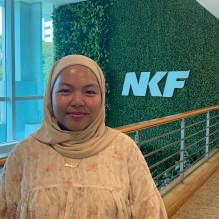
Amni Syarah Imerya Bte Salim
Engineering Systems and Design National Kidney Foundation (NKF)
My role
My main focus was to analyse the demand for dialysis services and demographics of kidney disease patients to ensure sufficient provision of dialysis treatment.
My challenge
In my opinion, the preprocessing and preparing of data was the most challenging part of the internship. Usually, in school, modules like The Analytics Edge will guide students closely on how to prepare the data to fit the intended model. However, in a real-world context, this is not the case. Even though it was initially difficult for me, I am ultimately grateful to take up this new experience and knowledge.
My biggest takeaway
Search for an internship and industry that you could see yourself working full-time in.
This internship has benefitted me in several ways. One key takeaway is that I have improved my skills and experience in working with Excel. I used Excel
promptly communicated with the relevant vendors and patiently awaited permissions or explored alternative solutions to complete the tasks at hand.
My biggest takeaway
My internships have equipped me with a well-rounded skill set and a deeper understanding of different aspects of the tech industry, from data analysis to manufacturing processes. These experiences allowed me to apply theoretical concepts learned in university to real-world scenarios, enhancing my problem-solving abilities and reinforcing the importance of adaptability in a dynamic work environment.
In essence, these internships have not only equipped me with technical proficiency but have also instilled in me the importance of adaptability, effective communication and continuous learning. These takeaways will undoubtedly serve as a solid foundation for my future career endeavours, allowing me to navigate the complexities of the professional landscape with confidence and competence.
Advice for my juniors
Consider multiple internships in different fields or roles to gain a diverse skill set and a broader perspective so that you can make a more informed decision on what role you would like to take up when applying for a full-time role.
to deliver a dynamic dashboard that helps executives in NKF understand the demographics of their patients and applicants. Additionally, Excel was used to map out the dialysis centres in Singapore to find gaps in the market that NKF could potentially cover.
The highlight of my internship was when I had the opportunity to present my work and findings to the CEO of NKF. That is one experience I value as it is an opportunity that does not come easily.
Advice for my juniors
Search for an internship and industry that you could see yourself working full-time in. This will benefit you as once you have completed your internship, you will have gained relevant experience in that field. Do not be discouraged if you get turned down by a company that you would like to intern in. There are other opportunities up for grabs!
GETTING READY
SUTD career guide 2024 19
Poon Jun Zhe
Architecture and Sustainable Design DP Architects
My role
My role involves assisting my team director and leader in producing visuals, such as renders, diagrams, and presentation slides for client meetings as well as project submissions. Over the course of 14 weeks, I had the privilege to work on different projects to varying degrees, all of which were at different stages of the design process. I created various visual renders using software like SketchUp, Enscape, Adobe Photoshop, and Autodesk Revit to help clients and the team envision the spaces of the new buildings.
My challenge
Leverage this time to your benefit by adopting a receptive attitude and absorbing as much knowledge and experience as possible!

Gan Zhi Hong
Engineering Product Development Caterpillar Inc.
One of the biggest challenges that I faced in my internship was the lack of project context. The projects were already in progress when I joined, and this presented challenges in comprehending and contributing to tasks such as crafting official reports on existing buildings, designing building components, and creating floorplans that comply with authority codes and client directives. To address this issue, I sought guidance from team leaders and members.
My role
I was assigned to the tender team and worked with the tender engineers to design and provide equipment based on the customers’ requirements. During my internship, I was tasked to create the Bill of Material based on the requirements the customers had sent in and provide an AutoCAD drawing of the full stack up and component that will be sent over to the customer as part of the tender bidding process.
My challenge
Spare some time to read up on the company’s products as well as the industry’s safety standards and protocols.
One of the biggest challenges that I faced in my internship was trying to learn and understand an industry I was not familiar with in a very short time. For the Oil and Gas industry, there are many safety standards and procedures that need to be followed and many of these details require a lot of time and effort to read up on. Thankfully, the engineers in the company were very approachable and explained to me the standards and steps in detail.
Another challenge that I faced was getting to know the company’s products. As a tender engineer, you are required to know the company’s products very well in order to propose the best design that suits the customers’ requirements. However, tender work is very time-sensitive and thus there is a lot of pressure to propose and work out the design for customers in a very short time.
My biggest takeaway
The 16 weeks of my internship have proven to be both exhilarating and enriching. Being an integral member of two dynamic teams engaged in diverse projects has afforded me the privilege of gaining firsthand insights into the operational dynamics of a prominent architecture firm. This experience has been particularly valuable as it has provided me with the opportunity to glean knowledge from seasoned professionals, including seniors, colleagues, and directors. This exposure has been instrumental in broadening my understanding of the complexities inherent in architectural practice and has significantly contributed to my future development as an aspiring architect.
Advice for my juniors
The internship period is an opportunity for self-discovery, which allows you to identify your strengths and weaknesses, as well as your preferences and dislikes within a specific industry. Leverage this time to your benefit by adopting a receptive attitude and absorbing as much knowledge and experience as possible!
My biggest takeaway
The biggest takeaways from this internship were the understanding of the engineering process of the Oil and Gas industry as well as knowing the products well. During tender work, calculations for load bearing and stress for the equipment have to be done and all of these contribute to the engineering design process. During my time as a tender engineer, I was able to apply what I learnt in school to be used during these calculation works and hone my technical skills such as AutoCAD and Solidworks.
Advice for my juniors
An advice that I would give is to ask questions when unsure, always understand the tasks at hand, and ensure that the proposal that you have designed meets the requirements. Additionally, spare some time to read up on the company’s products as well as the industry’s safety standards and protocols. Prepare a note with this information that you can easily refer back to as it will help you to be more well-versed in the company’s products and ensure that the design that you have meets both the industry safety standards and customers’ requirements.
GETTING READY
SUTD career guide 2024 20

Paraaga Raghavendra
Architecture and Sustainable Design
Broadway Malyan
My role
In Broadway Malyan, my role spanned various architectural domains, presenting a diverse range of responsibilities. From delving into architectural intricacies, evaluating economic viability, and shaping unit mixes in residential projects to contributing to landscape designs and exploring master planning concepts, I garnered comprehensive insights into the multifaceted aspects of architecture.
I first became interested in applying to the company during the internship fair organised by SUTD in my fourth term. Subsequently, I secured the internship by applying through the SUTD portal, submitting my resume and portfolio, and successfully navigating an interview at the firm. The entire process was seamless.
My challenge
Challenges are inherent in every professional journey, and mine revolved around acclimating to industry-standard software for the first time while meeting the company’s benchmarks. However, with handson experience and the guidance of my mentor and colleagues, I adeptly embraced these challenges.
Though initially navigating diverse teams with distinct working styles presented hurdles, with time and increased adaptability, it transformed into an enjoyable aspect of the experience. Amidst these challenges,

Looi Chi Han
Engineering Product Development
Panasonic Asia Pacific
My role
As a robotics software engineer, I started by co-developing the docking algorithm for HOSPI using ROS2. I then progressed to developing new Nav2 plugins and behaviour trees to equip HOSPI capabilities to manoeuvre in tight spaces.
I have been very blessed to get this opportunity. Initially, I applied under Panasonic Asia Pacific in the PRDCSG Company, or the Research & Development Centre essentially. However, PDRCSG was collaborating with MIC4 on HOSPI. Hence, I became an intern under MIC4 working directly with HOSPI, an autonomous delivery robot in hospitals.
My challenge
If you can have supervisors who are very willing to try new things and let you explore, take that opportunity to grow in your area of interest.
As much as open-source software is potent, it is often plagued by inadequate documentation. Hence, it requires software engineers to be thoroughly experienced in using these tools before they can even use them. Fundamentally, it is about taking it step by step, such as overcoming dependency issues, undocumented syntax and completely new logic flows
my internship served as a crucible for growth. It sharpened my technical skills, honed my collaborative abilities, and broadened my perception of what it truly means to be an architect.
My biggest takeaway
Throughout my tenure, I delved into various facets of architecture, ranging from architectural and landscape design to elements of master planning. Immersive, hands-on experiences equipped me with proficiency in diverse software tools and a holistic understanding of the architectural project workflow. Collaborating with multiple teams on projects of varying complexities enriched my knowledge base and heightened my adaptability skills. Working on projects tailored to different topologies, users, and functionalities illuminated the myriad possibilities within the field of architecture.
Advice for my juniors
To my junior colleagues embarking on their internship journeys, I encourage them to embrace curiosity. Ask questions, seek mentorship, and be open to learning from every experience. Embrace challenges as opportunities for growth, and do not underestimate the power of networking. The architectural community is vast, and every connection you make can be a gateway to new opportunities.
of programming. Only after getting familiarised with the tools and having the proper documentation then proper work can begin.
My biggest takeaway
For the hard skills, I am pleased to have learnt so much about ROS2 and Nav2 and appreciate how robust open-source software has become.
For the soft skills, I have learnt that communication is extremely important, such as teamwork communication, knowing the task deadlines and delivering the expected quality. This goes for both team leaders and members because communication works both ways to negotiate what can be realistically done in the given time.
Advice for my juniors
If you can have supervisors who are very willing to try new things and let you explore, take that opportunity to grow in your area of interest.
But at the same time, if you meet obstacles, keep calm. Take your time, be patient with yourself and ask those around you for help.
GETTING READY
Embrace challenges as opportunities for growth, and do not underestimate the power of networking.
SUTD career guide 2024 21
WHAT EMPLOYERS LOOK OUT FOR WHEN HIRING
While technical skills and qualifications matter, being adaptable and adopting soft skills is equally as important.
As you leave your school life behind and embark on a professional journey, you need to be prepared to adopt the skills needed to suit today’s working dynamics. While the corporate world has embraced remote working during the pandemic, most companies are now encouraging employees to return to office or transition to a hybrid working model. This only emphasises the need for graduates to be flexible and versatile in tackling the uncertainty present in their projects and working environment.
In order to best utilise your strength in technical skill and background, you also need to grow your skill set. These factors will be a big advantage for you, especially when you commence your new journey.
Exploring Soft Skills
• Maintain composure and calmly deal with complex issues
• Think critically
• Be open to different cultures, personalities, and experiences — and how these can translate into different thought processes and opinions
• Empathise with people in the workplace
• Possess good relationshipbuilding and teamwork skills
• Communicate ideas well during brainstorming sessions
• Collaborate effectively with teammates
• Exhibit good networking skills
Global Skills
• Be culturally aware
• Understand global perspectives and international businesses
• Equip yourself with new linguistic knowledge, along with a wide range of lexicon and language structure
• Be adaptable, ready to relocate and work in overseas environments
• Connect and manage work relationships with colleagues across diverse backgrounds
Digital Skills
• Be well-versed in social media
• Understand fundamentals of top trending technologies such as data analytics, machine learning, virtual reality (VR), and augmented reality (AR)
• Know the different types of software and systems
• Possess basic coding knowledge, programming, and development skills
• Understand digital design, management, and analysis
GETTING READY
SUTD career guide 2024 22

Future Skills
• Have complex problem-solving skills to tackle multidisciplinary problems
• Demonstrate creativity to generate new ideas, products, or solutions
• Utilise technological tools effectively
• Be adaptable and flexible; embrace change, be open to learning new skills, and adjusting strategies
Showcase your professionalism by
• Producing quality work, no matter how small the task may be
• Adopting a professional outlook by dressing appropriately to the company’s dress code
• Treating others with respect and kindness, regardless of personal emotions
• Understanding and delivering tasks professionally
• Taking initiative to ask questions when necessary
• Avoiding complaints at the first sign of change or a challenge
• Striving to seek solutions and ways to work more efficiently
• Maintaining a positive work attitude
As technology continues to pivot and change, the working world needs to follow suit. Thus, it is equally as important to practise a strong work ethic alongside the skill sets that you have. By doing so, this showcases your professionalism in the workplace and builds character.
GETTING READY
SUTD career guide 2024 23
GROWING YOUR PROFESSIONAL CONNECTIONS ON LINKEDIN
LinkedIn is the social networking platform for professionals. Here is how to present your best self online to your peers as well as prospective mentors and employers.
As a graduate about to join the working world, LinkedIn is one of the most important starting tools. It is the largest professional networking platform that offers a plethora of features to help you connect and grow with other likeminded individuals.
Aside from having the right skills and capabilities for an effective resume, your professional network is equally paramount in helping you land the right job. LinkedIn helps you showcase your credentials, make connections, and discover suitable job listings that are relevant to your skills and interests. By investing your time in building your network, you will also be growing your future opportunities.
CONNECT WITH INDUSTRY EXPERTS
Unlike other social networking platforms, LinkedIn is focused on quality and not quantity. Be mindful of who you connect with, and maintain your network properly. Connect with others within your industry so you can learn from their experiences, exchange ideas, and collaborate on projects. Not only does establishing connections in this way help add value to each other’s professional journey, but it could even lead to friendships and partnerships.

ADD PEOPLE YOU HAVE MET OR WORKED WITH
As you continue on your professional path, you will want to keep in touch with former superiors and colleagues from the past jobs and internships. Engaging with them on LinkedIn posts — by congratulating them as they hit work milestones or keeping them in the loop about your career opportunities — will allow you to stay on top of your connections.
Attending networking events and career fairs is also another way to build your professional connections. You will likely meet people from different backgrounds at such events which you can, in turn, add to your LinkedIn network.
The Career Development Centre holds plenty of these, so take the chance to attend them when you can. You will be able to find out more about the industries you might be interested in, but they also provide a great opportunity for you to expand your network.
If you are successful in maintaining your professional connections, they might turn to you if they know of an opportunity that you might be interested in. However, bear in mind that you should not simply ask for favours when extending your initial LinkedIn invitation. The platform is meant for building a genuine network, not as a stepping stone to get a job.
REACH OUT TO NEW CONNECTIONS
By adding people you have met at career fairs or networking events, you open up a new tier of connections through their network. Although you can add people from your contacts’ connections — to get to know them or as a potential insider source for job opportunities — be mindful that these are strangers, and you should be polite when extending an invitation to them.
GETTING READY
SUTD career guide 2024 24
DRAFTING AN INVITE
LinkedIn allocates 300 characters for you to work with when writing an invite to a potential connection. Your invite needs to be concise, but also interesting enough to keep their attention. This is how you should go about it:
1. Describe your professional encounter

It might be at a recent networking event, or through the introduction of a mutual connection, however, they might not recall your meeting. If you worked with them in the past, be sure to indicate when. It is best to assume that they might not remember bumping into you, thus helping them jog their memory would help.
Dear Stan,
It was a pleasure meeting you at the networking event with HS last weekend. Thank you again for the insightful conversation. Whenever you have the time, let’s catch up!
Best,
Lisa
2. Make use of a reference
If you are planning to add someone through a secondhand — or even third — connection, adding a reference in your invite is a good idea. Inviting someone with a mutual connection increases the chances of the invite being accepted, however, do check with your reference that they are fine with it.
Dear Gilbert,
I am a fresh graduate looking to pursue a career in facilities. I worked with Kelvin Lim during my internship at Brani Co. and would like to connect with another professional in the field. If it is alright, I would love to talk more about the local industry and the skills I would need to succeed.
Best,
Shukri
3. Distinguish yourself from the crowd
If you have just met a recruiter or an employer from a job fair, chances are they are already swamped with invitations from other interested parties. Ensuring that your invitation stands out from others might raise your chances of your invitation being noticed.
Start with a concise message outlining your relevant experiences and skill sets that you may possess for the positions they listed during the fair. Also, adding a personal note about the conversation you had with them during the event might also help.
Dear Syaz,
It was great speaking with you last week at SUTD’s Career and Internship Fair. I have also had a keen interest in your company, and I believe that my summer stint at One Care has given me some experience in the field. Happy to connect and continue our conversation.
Thank you,
GETTING READY
SUTD career guide 2024 25
Irah Sample Sample Sample
CREATING YOUR OWN PERSONAL BRAND
Your unique story, experiences, and skills set you apart. Building your personal brand is an effective strategy to showcase yourself as a worthwhile investment.
Every individual has a unique story, experiences, and skill set. During the job application process, graduates often rely on their efforts and education to secure opportunities. However, creating a personal brand highlights the best parts of yourself in a professional manner, and showcases the values you outwardly represent.
Define your personal brand by combining your career objectives, values, and life goals. Over time, these factors will continue to develop. Ultimately, establishing a personal brand is a life-long investment that accompanies your career.

Figure out what drives you
Your personal brand reflects who you are, your skills, and your values.
Firstly, you need to ask yourself the following questions to figure out what drives you.
• What type of jobs would make me happy?
• Would I prefer a job that pays well or one that aligns with my values and interests?
• What characteristics have others complimented me on?
• What subjects pique my interest?
• Corporate environment or a start-up?
• Do I see myself as an entrepreneur?
By self-reflecting on the questions above, it helps you identify some of the values, beliefs, or goals that currently drive you.
GETTING READY
SUTD career guide 2024 26
Cleaning up your digital footprint
Start by scrolling through your social media platforms and clearing any content that might be unflattering to potential employers. Delete irrelevant content that does not represent your identity. Alternatively, you could set up a separate account for your professional life.
Embrace your talent
Your brand should encompass all your talents and interests. This includes all of your hobbies and interests as well. It is a definite plus point if your hobbies can also enhance your career path.
For example, if you enjoy drawing, consider taking up art classes. Similarly, if you are active in sports, highlight your teamwork skills. You could also use your respective talents to accomplish personal projects. This allows you to have fun while you simultaneously sharpen your skills, and potentially, add them to your portfolio.
Be personable, while being professional
Your personal branding should showcase your personality as well, seeing as that is one of the major qualities you might be assessed on. Personable skills enhance likability and trust at work.
If you had any opportunity to work with large groups of people — such as prior industry experiences as a camp instructor, retail assistant, or even a part-time stint in hospitality — it adds value to your personal branding.
It demonstrates your ability to engage others, how you cooperate with others, and your level of enthusiasm and dedication. Employers would appreciate a good level of proactiveness combined with professionalism.
Aspire to be the best version of you
Starting out in your career, you might not have a mentor yet. However, you can always pick a role model that best fits with your goals and ambitions. This role model could be a business leader, a famous figure — who also happens to be a successful entrepreneur — or simply someone you look up to professionally.
These individuals should already possess a strong personal brand, thus making them ideal options for those who are looking to grow their own.
Observe how they brand and portray themselves, and use those qualities as a guide to develop your own.
Recognise your success
Success is a state of mind, not just tangible achievements. Recognise the process of you getting to where you are today instead of focusing solely on physical achievements and successes. You deserve to celebrate your achievements — no matter how small — by marking down the milestones throughout your life.
For example, taking part in competitions, hosting events, instances where you stepped up and demonstrated your leadership skills; these could be helpful when considering your career options. It could even point to your discipline and tenacity, ultimately becoming a strong part of your personal identity. Most importantly, remember to highlight your projects and technical competencies at SUTD.
GETTING READY
SUTD career guide 2024 27
NAVIGATING THE APPLICANT TRACKING SYSTEM (ATS)
By figuring out what makes the ATS tick, you can avoid having your well-written applications from slipping under the radar.
The job application process can feel like an endless loop. You craft your application, compile your portfolio, and send it out with the hope of landing an interview opportunity. However, it can often feel that your applications have landed in a bottomless pit with no response. This might be the Application Tracking System (ATS) working against you. If your application has yet to be automatically rejected, chances are that it is confined to the bottom of a pile, with recruiters unaware of its existence.
The ATS plays a crucial role for most employers, especially seeing as sending an application nowadays is as simple as a click away. Without it, employers could be left swamped with the extent of applications, having no way to deal with it. Thus, large companies employ ATS to help streamline their recruitment process, with smaller firms slowly following suit as well.
How it works
ATS tracks applications and resumes, whilst also acting as a filter. The system scores and ranks applications according to relevance before passing them to a hiring manager or recruiter.

Although the system streamlines the process for recruiters, it has drawbacks.
• ATS may struggle with accurate synonym processing, especially on older systems
• It only recognises exact matches, potentially placing well-written resumes without specific keywords at a disadvantage
Despite its shortcomings, bypassing the ATS is possible if you understand its requirements.
1. Optimise Your Resume
Using a fancy resume template may hinder rather than help. Here are some factors that should give you a one up over the ATS system.
• A resume design that is easy to read and utilises specific keywords
• Use simpler font types such as Arial, as the ATS might have trouble processing fanciful fonts and images
• Stick to the standard resume template and use common headings and keywords such as ‘Professional Experience’ and ‘Skills’
• While most ATS systems can process PDF files, Microsoft Word documents are often processed more accurately
GETTING READY
SUTD career guide 2024 28
2. Choose Keywords Wisely
Before submitting an application, thoroughly read the job description and responsibilities. This will help you select relevant keywords and phrases to use in your resume that will allow the ATS system to seamlessly process it.
Optimising your resume for ATS keywords increases your chances of your resume being noticed by the recruiter.
• Include role-specific keywords
• Examples: Education, certifications, or licences relevant to the role you are applying to, as well as hard skills
• Include industry keywords
• Tip: Perform a Google search for “[industry] resume keywords” to find keywords specific to the industry
• Check placement of resume keywords
• Example: In important sections such as education, experience, and skills
• Use correct spelling, numbers, and abbreviations
Although including keywords is important to ensure the system effectively ranks your resume, it is equally important to be honest when describing your past experiences and skills. The goal is to make the resume both ATS-friendly and readable to recruiters. If you encounter trouble drafting your resume and need assistance, you can always reach out to your Career Coaches.
Alternatively, you can contact a recruiter or hiring manager directly if they are contacts within your network. This can potentially help you bypass the entire process and reduce the concern of dealing with the ATS.

GETTING READY
SUTD career guide 2024 29
PAVING THE WAY TO A SUCCESSFUL JOB HUNT
Avoid job hunting burnout by finding the right way to effectively secure your first job.
How you present yourself to future employers is crucial. This is where personal branding comes in. By showcasing your accomplishments, what you stand for, and your potential, employers will be able to get a better picture of you.
For instance, if you aspire to a career in design, focus your personal brand on aesthetics and creative work. Having a digital or online design portfolio will also allow recruiters to refer to it whenever they need proof of your skills and development.
Start early
A headstart is encouraged when it comes to job hunting. However, that does not mean you have to immediately begin sending applications. Prior to your penultimate year, focus on updating your resume and portfolio, and keep an eye on the current job market. Not only are you able to get a better idea of the type of opportunities available, you can also take note of the skills and work experiences that employers are after.
Starting your job search early will maintain your motivation and focus when searching for job listings. Staying on top of the job market will be especially helpful when applying to companies with multi-staged hiring processes. Since the hiring process for these jobs can take months to a year, it is best to start early when you have ample time to prepare.
Make the most of your time
In between the job applications you send out, there usually is some downtime. As tempting as the extra free time sounds, indulging too much in it can deplete the motivation to job hunt. Use your time wisely, and balance your job applications with breaks to prevent burnout.
Use these breaks to upskill by attending courses or webinars. Additionally, if graduation is a few semesters away, start planning for electives relevant to your field. This acts as a great way to show employers you have the initiative to invest in yourself.

GETTING READY
SUTD career guide 2024 30
Get active on LinkedIn
LinkedIn is the go-to platform for fresh graduates seeking prospective employers. Employers, too, conduct background checks on applicants via the same platform. Thus, ensuring that your LinkedIn profile is up to date and presentable is a much-needed step in the pursuit of a new job.
In order to maintain your LinkedIn profile, refrain from fully exporting your resume’s contents. Use LinkedIn to network with other professionals who can provide recommendations, and also endorse any skills you have listed down on your profile. Joining a relevant LinkedIn group can also help expand your connections, gain industry insights, and receive guidance from others.
You can also connect with employees, learn more about their companies, as well as follow companies you are keen to work for. This will help keep you abreast of the ongoing developments within the company.
Refine your resume
Most employers garner their first impressions of you from your application and resume. Be sure to read through your existing resume, and ensure it is free from typos or grammatical errors. The bulk of your resume should consist of your skills and experience. The use of positive sounding verbs such as ‘achieved’, ‘collaborated’, and ‘won’, are keywords you should use to describe said successes.
Utilise the resources available to you, such as one-on-one resume critique and mock interview sessions with Career Coaches.
Do your research
Resist the temptation to apply to every job that catches your eye; focus on companies that align with your values.
Upon finding a listing that fits your interest, be sure to do your research. Aside from solely focusing on the job’s responsibilities, do your research on the company offering that position. You can start your research by looking through their websites, social media platforms and any related articles about them.
Check company review websites, such as Glassdoor, to read through experiences from the past and current employees. However, take the reviews with a pinch of salt, and bear in mind that said reviews may be influenced by personal biases.
In addition, attending recruitment workshops hosted by the Career Development Centre (CDC) can provide you with better insights into the company. This, along with thorough research and groundwork will better prepare you, but also demonstrate to future employers that you have a sincere interest in their company. Do not hesitate to ask hiring managers questions related to the job application before and during the process.
Building on your relationship
Building your network on LinkedIn will strengthen your connections within the industry you favour. Who you know can play a big part in your job search, hence you should not neglect your network. This network could be an amalgamation of ex-colleagues, classmates, or even faculty members. New connections, whether from career events or university, can enhance your career path and open up new opportunities. Ultimately, these connections can guide you on your way to your dream career.
GETTING READY
SUTD career guide 2024 31
HOW TO CRAFT AN EFFECTIVE ELEVATOR PITCH
If planned properly, you could be one elevator pitch away from landing your dream job.
What is an elevator pitch? Ideally, it is you taking a few seconds of your time to let someone get a sense of who you are, and the value you can bring to the table. This is particularly useful at formal events, such as career fairs, networking or information sessions. It also answers the introductory questions of “What do you do?” and “What is your background like?”
By preparing your elevator pitch, it will help you start any conversation on the right foot and leave your listeners with a good impression of you.
1. Keep it short and concise
• ‘Elevator pitch’ is accurately named, as you should be able to deliver it while on an elevator ride — approximately 30 to 60 seconds is a viable strategy here.
• Provide a quick summary of yourself, but in a way that engages your audience and leaves the curious to learn more
•
2. The content matters
• Introduce yourself, say what you do, and how you do it
• Mention something that makes you unique
Saying something like “Hi, my name is Julie, and I just graduated last month” might be the first thing that comes to mind as a suitable elevator pitch. However, from a recruiters’ perspective, they might not remember this specific introduction, especially since they might have heard multiple variations of it throughout the day.
Instead, stick with a theme for your pitch. For example, if you are passionate about the media industry, your pitch should ideally revolve around that industry.
Include the most relevant information — academic background, past work experience, current skills, any specialisations or key strengths. Think of it like filtering through the most important bits of your resume, and address what you learnt, the skills you have acquired, and results you helped to achieve. This presents you as a potential asset to an organisation.
Mainly, keep your pitch coherent and flowing well, as well as impress the recruiter with a few good details about yourself. If suitable, at the end of your pitch, ask a question. This acts as an invitation to talk more about how you could contribute to their
• End goal of your pitch should be to start a conversation, and not brag about your accomplishments
• Provide examples of your past achievements
• End your pitch with a conversation starter
industry, ask them to share some of their knowledge with you, or even as simple as asking what they do. The key thing to note is to keep the conversation alive.
The idea of public speaking can be daunting, especially if you are self-conscious or introverted. After all, if the spotlight is on you, it can sound like a recipe for a terrifying experience. Nonetheless, as the saying goes, practice makes perfect.
Ask your friends for help to serve as a mock audience, but to also offer you feedback to improve on your elevator pitch. There are also your Career Coaches if you need additional assistance. They can help simulate potential situations so you can practise and adapt if you need to.
YOUR CAREER TOOL BOX! SUTD career guide 2024 32
3. Common Pitch Mistakes
Although a short pitch might seem easy, it is often because of its brevity that some common mistakes might occur.
• Rambling
• Being too wordy or unfocused will lessen the impact of your pitch. Remember to get to the point quickly
• Talking too fast
• Use simple words, speak deliberately, and place emphasis where it matters most. Show interest in the other party’s responses and ideas
• Being too generic
• Avoid using generic jargon or buzzwords where specific words work better. Try to be conversational and natural instead of following a vague template for your pitch
• Confidence is key
• Instead of using phrases such as “I think I could fit the role” or “I hope you will give me a chance”, be direct and express yourself positively

YOUR CAREER TOOL BOX! SUTD career guide 2024 33
HOW TO SET YOUR RESUME APART
Sending out your resume is the first and crucial part of your job hunt. It is also the first impression recruiters will have of you, so make sure it stands out.
Review and understand the job posting
It can be tempting to send the same resume to every listing you see. Instead, review the job posting and the company’s website, before you begin creating your resume. Consider what you plan to include in your resume, focusing on the company’s culture, and tailoring it to make it as relevant as possible.
For example, if you are applying for a job as a journalist, a prior position as a university campus reporter would be more relevant as compared to your stint as a retail assistant.
Highlight your skill and areas of expertise
As you browse through job listings, take note of the required skills listed down and highlight them in your resume. If the listing emphasises skills related to programming or machine learning, then skills in IoT interfacing and data science should be highlighted. In short, only include skills that would be valuable to the position you are intending to apply for.
It will take you some time as well as trial and error to figure out what skills are best suited for the current role. Your Career Coaches will be able to assist you with any doubts. You can also reach out to your professional network for clarification.
Keep it concise
The goal of every resume is to keep it concise while having all the relevant information an employer is looking for. Although a resume can be two pages, most should just be one. It might look impressive to include the extensive list of internships, part-time jobs, or activities you have done, but there is no need to list every single one. Make sure you are only including information that could help you stand out.

A Quick Checklist
• Tailor your resume with relevant keywords that match the job descriptions
• Prioritise skills and experiences related to the applied role
• Do your research, using the job description as a reference
• Keep your resume to no more than one page
• Ensure readability of the resume
Use numbers as proof
Despite all your listed experiences, it is more important to back up your achievements by quantifying them. Using specific metrics instead of vague terms can offer a clearer representation of what you have accomplished.
For example, if you helped to boost sales, list it down as “increased sales by 15 per cent after implementing a referral incentive program”. Look through your past achievements and identify their key indicators of success before listing them accordingly. You might not have the exact numbers for everything, so it is fine to use an approximation.
Readability is key
The content of your resume matters, but so does the overall aesthetic appeal of it. However, before you start adding colours and fonts, keep in mind that your creativity should be kept professional.
• Font style: Use a legible font style such as Georgia, Times New Roman, Calibri, or Helvetica
• Font size: Preferably a size 11 or 12 point for easy reading
• Template: Keep your overall design minimal. Ensure there are no jarring visual elements that could take away from the content of your resume
• Colour: An attractive colour scheme is welcome, but keep your background white and text black for easy reading
YOUR CAREER TOOL BOX! SUTD career guide 2024 34
Sample Resume
Elizabeth Lee
Email: kiera moo@sutd edu sg, Mobile: 9234 5678
elizabeth-lee.com
Por olio: htt p :/ / , LinkedIn: www linkedin com/in/ EDUCATION
elizabethlee
Singapore University of Technology and Design (SUTD) Singapore
• Bachelor of Engineering (Engineering Systems and Design), Honours May 20 to Present
• Focus Tra ck: Business Analy cs, GPA 4 10/5 00, Expected Magna Cum Laude
• Expected Da te of Gradua on: August 2022
Zhejiang University (ZJU), Asian Leadership Programme Hangzhou, China
• Developed cross cultural communic on skills through interac ons with the Chinese professors May 21 to Aug 21 and classmates during daily lesson discussions
• Brainstormed and conducted market research on the types of wireless charging chairs for the China market , ideated and developed 2 func oning prototypes within a budget of $1000
WORK EXPERIENCES
Wangz Digital Sol ons Beijing, China
Data Anal cs Intern May 22 to Sep 22
• Analysed data collected from the performance of all 8 departments of the client, successfully proposed solu ons for the client to reduce ann ual expenditure on staffing by 25%
• Developed an internal manpower scheduling system for the team of 100 using Visual Basic Applic on (Excel) to generate a graphical view of the team’s availability and automate the upda ng process for b er alloc on of projects and resources
Soaring Heights Pte Ltd
Singapore
Finance Intern Dec 22 to Jan 23
• Implemented online tracking tool to monitor billing and invoice which led to 30% improvement for on- b illing
• Marketed and pitched ideas to client with 2 senior analysts, successfully secured the deal with a profit of 10%
• Conducted User Acceptance Test for 100 end users in 5 offices in Singapore, Indonesia, Vietnam and Thailand received and pos ve feedback from all users
ACADEMIC PROJECTS & EXTERNAL COMPETITIONS
BikeCLub
Singapore
Team Leader Jan 22 to Apr 22
• Led a team of 5 to work with BikeClub, to analyse their data, provide correla ons and insights to improve and op mise their produc vity, efficiency and services
• Used R language to attain the correlations and regression models, Python to generate Excel, SQL to organise the data provided for a clearer analysis and Visual Basic Application to compile and present the findings in a concise manner
UBA Business Case Challenge
Singapore
Student Analyst Sep 21 to Nov 21
• Designed survey ques ons for the targeted audienc analysed responses from the 100 respondents to deter mine e and financial literacy of young working professionals between 25 to 35 years old
the
• Presented research findings to a panel of 5 judges by p roposing the use of new media and mobile applica ons to enhance the user experience and financial awareness of target audiences
CO-CURRICULAR
Overseas Community Involvement Programme
Chiang Mai, Thailand
Project Director Dec 21 to Jan 22
• Led a team of 25 student volunteers and executed an inaugural 3 weeks overseas community outreach project to enhan ce the living condi on of over 400 u nderprivileged children in rural Chiang Mai
• Secured $5000 in sponsorship funds from 5 companies and organisations, through multiple meetings and discussions with company staff
ADDITIONAL INFORMATION
• Proficient in AutoCAD, 3D prin ng, Arduino, Raspberry Pi, VBA (Excel)
• Proficient in Micro Office, MS Excel (Advance Skills), MS Project
• Fluent in English and Mandarin (Both spoken & wr en )
QUICK TIP
Name as header
Centralise, enlarge and bold your name so that it is the first thing recruiters see.
Additional links
Overseas experience
If you have any, make your application stand out by adding them into your resume. These can include exchange programmes, or internships.
Keep it concise
Use verbs to highlight your skills and competencies. Keep it informative and relevant, but to the point as well.
Be results-oriented
Whenever possible, use objective/quantifiable ways to describe your results.
The AAA framework (Action + Amplification = Achievement) is one method you can apply here.
Highlight your co-curricular activities
Academics are not the only thing recruiters look out for. They also note those who are well-rounded and actively participate in co-curricular activities. Pick out the most impressive ones, like those that provided you invaluable experience or where you have contributed significantly.
Technical expertise
List down the specific programmes you are proficient in and highlight those that you have advanced skills in.
Do not rush your resume at the last minute. Some application deadlines can change due to high response levels for a certain listing. Sending a slip-shod resume not only gives a bad first impression, but it will also be the employer’s first source of reference. So set aside some time to write it up properly!
Most positions are on a rolling basis, which means once recruiters have received good resumes to shortlist, they may proceed to the interview stage and make an offer, even before the closing date. So, do not procrastinate for too long. Once you are comfortable with your
If you have an online portfolio or a LinkedIn profile, you can put them here. resume, start to apply for the position.
YOUR CAREER TOOL BOX! SUTD career guide 2024 35
A GUIDE TO THE IDEAL COVER LETTER
Although most applications will not require a cover letter to accompany your resume, preparing one may increase your chances of success.
What is a cover letter?
A cover letter is an accompaniment to your resume that allows recruiters to get a glimpse of how your experience and interest relate to the position you are applying for. Essentially, your cover letter should convince your potential employer the reason why you should be considered for an interview. It also enables them to see how your skill set can contribute to the company.
Sending a cover letter showcases the extra effort you are making as a candidate, and can also distinguish you from other candidates. Here is how you can write a cover letter that stands out.
The Ideal Cover Letter Template:
(Name)
(Address)
(Mobile Number)
(Email Address)
Customise your letter
No two job postings are alike, and the same principle should be applied to writing cover letters. It is paramount that you tailor your letters to the specific job scopes and responsibilities by applying the same research you have done for your resume. Ultimately, your cover letter and resume should complement each other as one comprehensive set.
Check for any mistakes
Before attaching your cover letter and sending your application over, ensure that you double-check for any mistakes — grammatical errors or typos — and also read through your letter to ensure it flows well.
Furthermore, keep in mind that a cover letter should be a page long at best. If you are concerned that you have missed out something or would like a second opinion, have someone else review it before you send it.
(Date)
(Hiring Manager’s Name)
(Their Job Title/Description)
(Their Department Name)
(Company Name)
(Company Address)
Dear Mr/Ms _______ (Hiring Manager’s Name)
Application for the Position of (Job Name)
First paragraph
• State the purpose of your letter, and where you found the job opening (from their company website, LinkedIn, etc.)
• Give a short introduction about yourself
• Show your interest by showing your research, or bringing up speaking to someone who works there
• Tell the recruiter why you want to work for this company
Second paragraph
• Highlight your more significant and relevant skills/knowledge
• Provide examples for the above to increase credibility. Show the recruiter that you have the right skills and knowledge for the job, and why you are a perfect fit for them
Last paragraph
• Thank the recruiter for considering your application
• Request an interview (be it face-to-face or online)
• Include your contact information should they wish to reach out to you
• End on a positive note
Yours sincerely, (Your Name)
YOUR CAREER TOOL BOX! SUTD career guide 2024 36
Elizabeth Lee
XYZ Road, S354123
Mobile: 9234 5678
Email: elizabeth.lee@sutd.edu.sg
23 July 2023
Mr Richard Lim
HR Manager
Human Resources Department ABC Company
CVR Road, S654321
Dear Mr Lim,
Application for the Position of Data Analyst
I am writing to express my interest in applying for the position of Data Analyst in ABC Company. I am currently pursuing my studies at the Singapore University of Technology and Design (SUTD) and am expected to graduate in August 2023 with a GPA of 4.20/5.00. I am interested to join your company after speaking with Ms Jamie Teo, your CEO, during the Industry Networking Fair in 2022. I was impressed by the continued foresight and ambition of ABC Company in the face of the changing economy, and I am excited to be part of this great team that provides innovative solutions across five countries.
During my course of study, I have completed courses in machine learning, data science and natural language processing, and was honoured in having one of my projects be published in Fusion, one of SUTD’s monthly newsletters. In addition, I was tasked in my third year to lead five other team members to work with BikeClub to analyse their data. I provided correlations and insights to improve and optimise their current productivity, efficiency and services. I utilised various programming languages throughout the process, including R language, Python and Visual Basic Application in order to process and present my findings. Our client was extremely pleased with not only our analysis but the solutions we proposed as well.
Please refer to my resume for additional information on my education and work experience. I look forward to a face-to-face or video interview with you to discuss my suitability for this position. For any enquiries, I can be contacted at 9234 5678 or elizabeth.lee@sutd.edu.sg at your convenience.
I appreciate your consideration, and I look forward to hearing from you.
Yours sincerely,
Elizabeth Lee
YOUR CAREER TOOL BOX! SUTD career guide 2024 37
Send
BUILDING YOUR TECHNICAL PORTFOLIO
As an SUTD student, a technical portfolio is a chance for you to showcase your projects and capstone.
Portfolios are commonplace across various industries. However, a technical portfolio is essential if you are aiming for a role as a tech professional. A tech portfolio is a collection of your projects, code samples, and other evidence of your technical abilities. Not only does it allow you to stand out from the crowd and impress potential employers, it acts as a strong online presence that showcases your skills and achievements.
If you have yet to start on your tech portfolio, it can be daunting. Here are some tips and best practices on how you can best showcase your tech projects and build an effective portfolio.
Building the foundation
Although physical portfolios are still an option, digital ones are more commonly used due to their accessibility. It also means you have more control over their design.
There are plenty of templates you can use and edit, or you can choose to showcase your tech proficiency by starting from scratch. If you are savvy in coding — Javascript or Python — this will be a great way to display your skills.
You will then need to name your domain. You can choose between picking a free one, or paying a yearly subscription to customise your own domain address. Consider it an investment in the long run to give your portfolio a professional finish.
Some popular platforms include Behance, CodePen, WordPress, and GitHub. Factor in the ease of use and customisation, its features and functionality — analytics, feedback, and collaboration tools — its audience and reach, as well as the hosting fees.
Focus on quality Showcase your skills
It is paramount that you showcase your best works. These include any projects you are proud of or best exemplifies your skills in a diverse and impressive way. Some examples include school assignments, personal projects, or notable contributions you have made on open-source projects. Remember to choose projects that align with your target job or industry in order to demonstrate your suitability for the role.
Most importantly, ensure that the projects you select are recent, updated, and are not broken or unfinished. Additionally, projects done for past clients or companies should be checked for confidentiality, making sure that they can be displayed publicly on your portfolio.
For graduates who are just beginning their foray into the industry, you can consider starting up personal projects. Such projects can range from creating websites for a mock client, or contributing to open-source projects online.
It is also equally as important to provide context on the projects; namely, the objective and results you have achieved. If possible, provide supplementary materials — prototypes or draft sketches — as they are a glimpse into your working process.
By explaining your approach to each project, you demonstrate your technical and soft skills. Ensure that you use clear and concise descriptions for each project that highlight its features, benefits, and challenges. Code snippets or diagrams can supplement your explanation on how you implemented your solution and what technologies you used. Data, metrics, or statistics are also great ways to show how your project performed over time.
Lastly, if possible, include testimonials, reviews, or feedback from clients to showcase how your work has impacted or satisfied the users. You do not have to include every detail of your work process, simply the ones that showcase your value and impact.
YOUR CAREER TOOL BOX! SUTD career guide 2024 38
A sense of you
In the midst of the coding and tech talk, you also need to give your portfolio a personal touch. Potential employers want to get a sense of who you are and what you will be like as an employee. Your ‘About Me’ section of your tech portfolio should fit your personal brand and identity. You can share your values, professional journey, and feature testimonials from colleagues. Do remember to include your contact information so potential recruiters can reach you.
Ultimately, keep in mind that your tech portfolio needs to be optimised for your target audience and purpose. Recruiters should be able to find, navigate, and understand your portfolio with ease.

Keep it updated
Similar to updating your resume, your portfolio should be no exception. It is important that it represents an accurate reflection of your current skills and capabilities, so updating it once a month or whenever you have something new to add, is encouraged.
In order to keep your portfolio fresh, phase out older works if you find that it is featuring too many projects. Try to make this a regular habit, especially for digital portfolios as it is possible for potential clients and recruiters alike to be looking through it at any time.
By keeping your portfolio up-to-date, it demonstrates that you are an active learner who is continuously upgrading yourself as a tech professional.
Remember to have the means to access your portfolio during an interview — be it through a portable device such as a laptop or tablet or through a link you have sent beforehand — to present your work.
Sample of Technical Portfolio for a Junior Web Developer
1. Homepage
The homepage needs to clearly show who you are and what you do.
2. Skills
Display your programming skills and web development experience, mention the education or web development certifications you have earned to add credibility.
3. Curate your projects
Display only your best work here. If you are an entry-level developer with little work experience, list open-source projects you have contributed to.
4. Create an engaging design
Not only can creating an engaging design increase your credibility and brand recognition, it also showcases your personality and creates a lasting impression.
5. Add social proof
Testimonials from previous clients to build trust and catch the attention of potential employers.
6. Include a contact form
YOUR CAREER TOOL BOX! SUTD career guide 2024 39
DRESS TO IMPRESS
Looking your best for job interviews not only makes a good first impression on employers but also boosts your confidence, allowing you to perform at your best.
BUILDING A WORK CAPSULE WARDROBE



Women are spoilt for choice when it comes to wardrobe selections. However, you can never go wrong with having these items as part of your work capsule wardrobe.
• Pants or skirt-suit
• Well-pressed blouse or shirt
• Jacket or blazer for more formal occasions
Stick to colours that are not too bright. Ensure that your skirt is kneelength and maintains a modest length even when seated or bending down.
• A simple ponytail or a sleek bun
• Keep your makeup natural; avoid red lips and opt for a gloss or a lip balm instead
• Bring makeup with you to retouch if needed
• Simple necklace, earrings, or bracelet
• Use closed toe flats, pumps under 2 to 3 inches, or court shoes
OUTFIT HAIR AND MAKEUP ACCESSORIES
Men should have these staples in their wardrobe:
• A shirt and tie combo
• A well-tailored suit and pants set
• A neutral plain t-shirt for less formal occasions
An ill-fitting suit might reflect poorly on you. Keep your colour palette subtle, favouring dark blues and greys.
• Keep your facial hair neatly trimmed to avoid stray hairs
• Ensure your hair is neatly styled
• Smart, freshly polished leather shoes in black or brown
• Boots and loafers are also acceptable depending on the formality of the interview
• Accessorise with a simple belt (that matches your shoes), cufflinks, tie clips, and a wristwatch
YOUR CAREER TOOL BOX! SUTD career guide 2024 40
WHAT DIFFERENT DRESS CODES MEAN

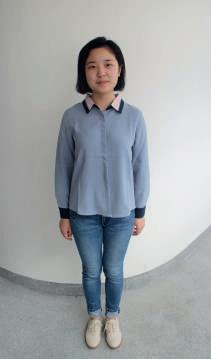



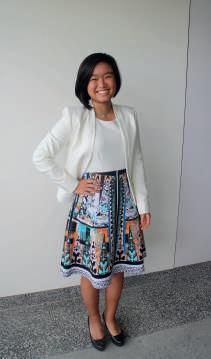
SMART CASUAL
This is a common dress code for the creative, engineering, and IT sector. It is also frequently adopted by start-ups.
For Her:
• Dress (can be in fun colours or prints)
• Button-down shirt or blouse
• Skirt or jeans
• Wedges, flats, or low-tomedium heels, loafers, sneakers
For Him:
• Polo tee or shirt
• Pants, jeans, chinos
• Dress shoes or loafers

BUSINESS CASUAL
Employees adhering to this dress code tend to be from the public sector, media, and FMCG industries, among others. Those with client-facing roles typically wear this attire.
For Her:
• Dress (neutral colours)
• Blouse or shirt with threequarter or long sleeves
• A-line or pencil skirt
• Dress pants
• Wedges, flats, or low-tomedium heels
For Him:
• Long-sleeved shirt
• Pants
• Dress shoes
• Cufflinks, tie, and jacket if desired


BUSINESS FORMAL
Predominantly seen in the banking or finance sector, this dress code projects a strong professional image in client-facing situations. It also works for formal events such as networking sessions, company dinners, and interviews.
For Her:
• Work dress
• Top or shirt with threequarter to long sleeves
• Dress pants or pencil skirt
• Flats or low-to-medium heels
• Business suit or blazer
For Him:
• Long-sleeved shirt
• Pants
• Dress shoes
• Cufflinks and plain tie
• Suit in a dark colour


YOUR CAREER TOOL BOX! SUTD career guide 2024 41
HOW TO SUCCEED IN DIFFERENT JOB INTERVIEWS
Prior to your interviews, it is essential to understand and prepare for the type of interview you will be facing.
It is important to celebrate small wins, and landing a job interview at your ideal company is no different. In order to land a positive first impression with your potential employers, preparing for your interview is vital.
However, post-pandemic, there has been a rise in the variety of interview types, in addition to in-person interviews. Thus, being able to understand the type of interview you will be going through is important.
Types of Interviews

Robot Interviews
Robots and artificial intelligence (AI) have been used for interviews to enhance efficiency and the quality of hires. Robots are able to collect objective data, hence enabling a fair candidate experience throughout. It is also a more secure way of preventing data breaches.
Despite the unconventional method, there are some ways you can prepare for a robot interview.
• Ensure a blank background for your video interview, use flattering lighting, and invest in a decent microphone
• Practise with a friend on Skype or Facetime
• During the interview, place more emphasis on your body language by leaning forward slightly, making lots of eye contact, and showing more open mannerisms
• Script out what you might want to say for certain answers and roleplay by reading it out, so that you feel more comfortable when you have to repeat it again
• Weave in key phrases used in the job description
• Do remember to still research the company in advance, and wear interview-appropriate clothing
AI analyses content and cannot deduce any implied meaning during an interview. Being direct is key. The software also takes note of vocal tone that matches the company’s job description. It will compare what you say and how you perform against performance patterns of past job applicants who are viewed as desirable employees.

Face-to-face interviews
In-person interviews have gradually resumed after the easing of social distancing. To date, it is still the preferred choice by most employers. Not only does it offer a higher level of engagement with the candidate, it is one of the most effective ways to assess their interpersonal skills.
Prior to a face-to-face interview, here are some ways you can prepare in advance:
• Do your research on the interviewer, be it the hiring manager or a direct supervisor. You can tweak your responses or questions accordingly
• Ascertain in advance whether it is a one-on-one interview or a panel interview ahead of time. This will save you from the shock if you enter a conference room full of people
• Throughout the interview, be aware of your posture, body language, and tone. If you need practice, reach out to your Career Coaches to set up a mock interview for further assistance
YOUR CAREER TOOL BOX! SUTD career guide 2024 42

Video and pre-recorded interviews
The pandemic and stringent social distancing measures have led to a greater reliance on platforms such as Zoom and Microsoft Teams. Said video interviews have become more commonplace, and even now, are still a top pick for some employers, especially when they are interviewing for remote work positions.
Although most video interviews are set in your own home, there are still some preparations that are needed:
• Checking your devices and making sure that they are fully operational the day before
• Making sure that your device’s audio, video and internet connection is stable approximately 15 minutes before your interview
• Ensuring your surroundings are conducive, well-lit, free from distractions, as well as presentable
• Plug in your laptop to its charger so you do not have to worry about its battery strength
• Put on noise-cancelling earphones or headphones so that both you and your interviewer will not be distracted by background noises, if any
• Prepare a “cheat-sheet” in advance for you to refer to during the actual interview. This can include notes about your strengths and weaknesses, or answers to common interview questions
• Have your portfolio on standby for screen-sharing
• Dress as if you were attending a face-to-face interview as it will put you in the right mindset and provide a slight confidence boost
Even with a cheat sheet in hand, avoid over-relying on it and ensure that you maintain eye contact. Some interviewers can tell whether you are referring to something off-screen.

Phone Interviews
Phone interviews are commonly used in the initial screening round to gauge if candidates are a good match for the company. These are typically less formal and usually last for a shorter period, approximately 30 minutes.
As with any job interview, you should still take this format seriously.
• Prepare in advance as best as you can once you have the date and time scheduled for the phone interview
• Confirm all the details beforehand - whether you need to wait for their call or if you need to call the interviewer
• Ensure that your surroundings are free of any distractions, your phone is fully charged, and has strong reception
• Keep any documents you need within reach, such as a copy of your resume, and any notes you have for easy reference
Although most phone interviews are scheduled, there are times when you may get these calls unexpectedly. In this case, there is no harm in politely postponing the interview if you are caught offguard. Remember to inform the recruiter or interviewer that you need to reschedule to a more suitable time.
Hot Tips from Industry Experts
Succeeding in tech interviews and assessment centres requires a blend of technical know-how and essential skills. It is also important to align with the organisation’s mission – for NCS, it’s “harnessing technology to advance communities”.
Beyond technical expertise, showcase your problem-solving, adaptability, and communication skills. Stay updated with industry trends and relevant projects, demonstrating your commitment to the transformative power of technology. Get to know the company culture to ensure alignment with your values. Be confident while being open to seeking clarification when needed. Highlight teamwork and collaboration as essential qualities.
Lastly, practise diligently to refine your technical or presentation skills. Success in tech roles relies on your ability to apply knowledge, adapt, and make innovative contributions.
YOUR CAREER TOOL BOX! SUTD career guide 2024 43
1. Competency Questions
Types of Interview Questions
To assess a candidate’s personality, interviewers pose open-ended questions to determine how well you might fit into the job and the company.
The questions aim to test a variety of your skills and gauge your input on specific matters, depending on the job and the sector. Ensure you prepare your answers beforehand by researching the different types of competency questions, and try to relate your experiences to how you can contribute to the company.
Example: Describe a conflict you had during one of your group projects, and share how you handled it.
2. Situational Questions
Tip: Use the STAR method to format your answers
Recap the Situation
Describe your Task
Share the Action
What are the Results
3. Technical or Industryspecific questions
Tip: Keep abreast of the latest news and trends in the industry as you may be asked relevant questions about it. This will determine how commerciallyaware you are beyond what you are taught in school
These are often more hypothetical, and at times, might seem too complex or challenging for you to answer. In such cases, these questions may be intentional.
Bear in mind that with these questions, interviewers do not necessarily expect the “correct” answer. Rather, they are after your thought process when handling ambiguous situations.
Example: Describe a situation when you had to make a difficult decision with limited information.
Technical-focused jobs — especially those in the STEM sectors — will require certain technical skills and knowledge. These questions are staple in interviews, assessing both your proficiencies and industry-specific knowledge.
Some technical tests are expected to be completed within two hours, while others may allow you to work on them over the weekend and submit the subsequent week.
In preparation, review what you have learnt in your curriculum, and focus on the specific skills and information required for the job. Take into consideration that questions usually revolve around logic and reasoning. However, it is less about whether you are right, and more about your reasoning process.
Example: Are you familiar with two-tier architecture? Explain its elements and uses.
4. Assessment Centres
Assessment centres are utilised by some employers to screen potential hires. This involves a combination of back-to-back group and individual exercises which simulate the conditions of the job role.
The tests administered might vary depending on company and job role, but they can include roleplay, exercises, competency-based interviews, and psychometric tests. These may be conducted on-site or remotely.
How to prepare for an assessment centre interview:
• Read through your assessment centre invitation letter thoroughly, noting the venue, time, and date correctly
• Psychometric tests might encompass numerical, abstract, or reasoning. Consider taking a mock test online if you want to practise and familiarise yourself with them
• Arrive punctually and dress appropriately, whether the
assessment is done in-person or online
• Collaborate with other candidates during group exercises, and take the initiative to lead whenever the opportunity presents itself
• Remain friendly and polite with everyone you meet, as cooperation is part of the assessed traits
• Concentrate on your tasks, and maintain good time management
YOUR CAREER TOOL BOX! SUTD career guide 2024 44






Build
Yours Discover how we empower you to take your career into your own hands. We take ownership of our professional and personal growth journeys. We are an innovative, winning team. We create a positive impact in our community. Find out more income.com.sg/careers
a Career Made
DIVERSIFYING YOUR NETWORK
Networking is an essential skill for any professional. Knowing how to effectively and authentically build valuable relationships can boost your career prospects.
As you progress steadily throughout your career in the working world, you will undoubtedly encounter people from various backgrounds. In turn, you will be invited to networking events to expand your connections. Besides providing you with a myriad of opportunities, networking helps you grow your reputation.
Whether you connect in person or online, it is essential to identify your goals. These goals might range from learning a new skill or finding a mentor, to getting referrals and exploring new opportunities.
The earlier you begin building your network, the quicker you will benefit from it. However, even for seasoned individuals, networking can be an intimidating experience if you do not know where to begin.

Where to Begin Networking
Do your research
Be it a career fair or a campus talk, any professional event presents an opportunity to network. Take the time to find out who the attendees are, and do your research on them.
You also need to identify who you would like to connect with, and where you can find them. You can use online platforms such as LinkedIn, industry blogs, podcasts, newsletters, or forums to reach potential contacts. In this way, you can familiarise yourself with their background and interests prior to your networking opportunity.
Ask questions and find common ground
Upon finding someone you are interested to converse with, ask polite, concise, and respectful questions. Be it offline or online, avoid generic questions or spam messages. Explain the reason why you want to connect, state the value you can offer, and what you hope to learn from them.
Most importantly, do not be pushy. Before ending the conversation, thank them for their time and attention, and ask them for their professional contact information such as their email address or LinkedIn. If you want to ask for advice, feedback, or referrals, you can do so but do not expect anything in return.
Stay in touch
Remember that your main goal is to professionally connect with said individual, so refrain from being carried away in idle chit chat. Another reminder is, just because you have them in your network does not mean the networking is done. You still need to continue maintaining your connections.
Networking is a long-term process of building trust and rapport with your contacts. Show genuine interest and curiosity, listen actively and empathetically, and share your own insights and stories. Be consistent and reliable as well. If you made a promise to connect them with someone else, make it happen.
YOUR CAREER TOOL BOX! SUTD career guide 2024 46
Network Tips for Recruitment Events
Prepare your elevator pitch
It is difficult to present yourself in a short amount of time, while still keeping it as engaging and memorable as possible. An elevator pitch comes in handy here, so be sure to prepare it before the event. Plenty of employers and recruiters could be looking for new hires, so this is the best time to use it.
Put your best foot forward
First impressions are important, especially when meeting new people. It matters how you carry yourself and even what you wear, so make the effort to look your best. In turn, this will boost your confidence.
For virtual events, people may primarily form impressions based on how you communicate. With this in mind, speak eloquently and professionally, using complete sentences and addressing recruiters properly. If you speak fast, try to slow your pace so people can hear and understand you better.
Update your LinkedIn profile
If you plan on using your LinkedIn for networking, make sure that the information on your profile is up-to-date. It would not make a good impression especially if your LinkedIn profile is empty.
Network Tips for Conferences
1. Plan your schedule
Conferences are packed with plenty of talks and panels scheduled throughout the day, sometimes even concurrently. As such, knowing the event’s schedule will help you pick out which session you would like to attend and which to skip. Since conferences last a few days, it would not be ideal to attempt to attend every activity without a break in between.
2. Come prepared
When attending a panel, be prepared with questions for the Q&A section, or to converse with other speakers and attendees.
Prior to attending, identify what you hope to achieve from your time at the conference. Are you interested in gaining knowledge about the latest technology or trends, or are you there with the sole purpose to network?
Remember to research the speakers, panels, and workshops as well. Ideally, sync the conference calendar if possible. Most importantly, bring your charging cable and portable charger, a medium for note-taking and a printed schedule just in case the network connectivity is weak. Finally, comfortable shoes are a must have.
3. Mind your etiquette
Arriving early is crucial, especially for keynote speeches or sessions of interest. Take notes and leave with takeaways. These include statistics, ideas, or quotes that resonate with you. Additionally, your best chance of becoming visible at a conference is to be an active participant. Be proactive and engage actively with others.
This could be through readily answering questions when possible, or asking a question during a panel when the floor is open.
Conferences also offer networking events. Choose those that are relevant to your interests and fit your schedule.
Above all, be sure not to hog the spotlight to yourself. Maintain a balance by commenting occasionally or sticking to asking one question. This ensures everyone has an opportunity to participate.
4. Post-Event review
After the conference, it is good practice to review your notes and takeaways. Remember to follow up with recent connections by sending them a follow-up email or extending a LinkedIn invite.
Discuss the conference experience and key lessons with your colleagues, especially those who did not attend. Through this sharing session, there might be pointers you learnt that could be beneficial to the way your current organisation functions.
YOUR CAREER TOOL BOX! SUTD career guide 2024 47
TACKLING JOB OFFERS
Do not settle for the first job that comes your way without proper consideration.
The job-hunting process can be long and arduous. From putting your effort and time into crafting the perfect resume to successfully handling multiple job interviews, receiving a job offer is worth celebrating. Although it might seem convenient to settle for the first offer you receive, there are some things you should do to ensure you are making an informed decision.
Whether it be an offer letter or an offer via a phone call, there are three things you can do:
1. Accept your offer immediately
2. Choose to reject the offer
3. Inform the hiring manager that you need some time to look through the contract

1. The Offer Letter
Successful candidates are usually notified by email, though other means such as phone calls or text messages may also be used. If you choose to accept your offer immediately, an official offer letter will be sent over for you to sign.
Upon receiving the offer letter, read through it carefully, analyse it, and make sure it aligns with your goals. Additionally, you should also look out for the following:
• Job title
• Fixed salary and benefits (inclusive of monthly allowances and/or claims)
• Variable incentives (such as commissions and bonuses)
• Professional development measures
• Probation period (its length and terms)
• Notice period (the time between resignation and your last day of work)
• Expected hours of work
• Annual and sick leave entitlements
• Company insurance coverage
• Start work date
Ensure that the job offer, as presented during the interview process, matches what is in writing. For example, if you were informed that you are entitled to a bonus during the interview, however, there is no indication of such in the offer letter, that would be something to discuss with the hiring manager.
2. Meeting the Benchmark
Analysing whether the offer meets your benchmark in terms of career goals is important, as it impacts the long-term job satisfaction and overall contentment. You should consider the skills you want to utilise within the offered position as well as how you want — and are able to — grow.
Some questions to ask yourself while you go through the offer letter are:
• Do I want to lead a big team, or simply supervise a small one?
• What kind of projects do I want to engage in, and will these projects help me grow?
• With this job, how will it set the tone for my career progression in the future?
• Is this a role I can succeed in?
Having a deep understanding of how this role can or cannot fulfil your goals is a critical deciding factor of whether you want the position.
3. Negotiation and Clarification
After taking the time to look over the formal offer letter, contact the recruiter immediately if you have any doubts or clarifications. This also applies to graduate programmes as well. Said programmes may depend on your grades or qualifications to be valid, or may require you to travel out of the country. In such cases, it is helpful to turn to your Career Coaches for advice and guidance about the matter.
You can also negotiate your offer in areas ranging from salary to annual leave. It is advisable to prepare a negotiation letter, detailing your counter-offer. Do remember that once you have submitted your negotiation, you can no longer go back on it. You should also aim to maximise the cost of things you are prepared to accept, minimise those you are asking for, and provide the recruiter a few days to revert to you with their answer.
Above all, you should remember to indicate your gratitude for the offer, and be respectful and constructive with your negotiation.
YOUR CAREER TOOL BOX! SUTD career guide 2024 48
4. Accepting the Offer
Once both parties have discussed and reached a negotiable offer, a formal contract is sent over to confirm the details and terms of employment. It is time to go ahead and sign that contract!
While some companies simply require a signing of the contract, others might require a proper acceptance letter as a formal agreement to join the company. This formal letter signifies that you have accepted all the terms and conditions discussed.
Here are the steps you should follow in the event you need to draft a formal letter:
• Review the confirmed offer letter and double-check the start date, salary, and working hours
• Write the date on your acceptance letter. This acts as a record for future reference
• Include your name and address as well as the recipient’s name and address
• Write a clear subject line if you are starting a new email
• Address the recipient with the proper salutation. For example, “Dear Sir/Madam” or “Mr/Ms” followed by their name
• Express your gratitude and thank the employer for selecting you
• Accept the terms of employment in a formal statement
• Affix your signature at the bottom of the letter with a closing salutation and write your name
Remember to proofread your letter before sending it for any grammatical or language errors. Additionally, check for typos and write professionally using a single font type. It is also important to stick to the deadline to ensure you leave a good impression on the employer. Sending your acceptance letter late can be perceived negatively. You should also follow up to ensure they have received the acceptance letter.
5. Declining the Offer
Conversely, you might conclude that the job offered might not be the culture you are looking for. Even if you decide to decline their job offer, you still need to send a response. Ghosting the company and hoping they take the hint might seem tempting, but doing so will leave a poor impression of you on the hiring manager and could result in you being blacklisted from future openings with the company.
Politely declining the offer can be tricky. However, it is necessary to turn down the offer especially if the job is not the right fit for you.
Here are some steps on how you can decline a job offer gracefully:
• Express gratitude for the opportunity and consideration
Example:
Dear [Hiring Manager].
Thank you for offering me the position of [Job Title] at [Company]. I appreciate you taking the time to consider me for this opportunity.
• Be clear and honest about your reasons for declining the offer
After careful consideration, I have decided to respectfully decline the offer. While I was impressed with [Company]’s values, I have received an offer that is better suited to my current career goals and aspirations.
• Offer a reasonable explanation
• Stay professional and polite, while keeping your response positive
I had a positive experience learning more about your organisation and I appreciate the professionalism and support you provided throughout the process. I hope you find the right candidate who will be an excellent addition to your team.
• Stay in touch and build a relationship with the company by connecting through LinkedIn or other social media platforms
Thank you again for the opportunity, and I wish you all the best. If there is anything I can do to support your organisation in the future, please do not hesitate to reach out.
Sincerely, [Your name]
6. Managing Early Offers
After acing the interviews and impressing the hiring managers, you find yourself receiving multiple or competing offers for your dream job. Occasionally, graduates may even find themselves with offers even before they start job-hunting. This could stem from a past internship stint or companies scouting for talents.
However, you are not obligated to accept the first offer you receive. Instead, weigh your options and conduct thorough research so you can make an informed decision. Here are some tips to help you navigate this delicate situation without losing out on the best opportunity:
• Compare the offers objectively
Consider the salary, but also the benefits, perks, culture, location, growth potential, and work-life balance of each employer
• Communicate your interest and appreciation to each employer without revealing too much information about your other offers
Let them know that you are considering multiple or competing offers, and ask for a reasonable deadline to make your decision. If you require an extension, explain why, and ask for one politely.
• Practise strategic negotiation
If you want to leverage one offer to get a better deal from another, you can try to negotiate. However, be careful not to appear greedy or arrogant, and negotiate only with employers you are seriously interested in. Focus on how you can addvalue to them and be flexible.
Once you have decided on the offer you would like to accept, remember to let the employer know as soon as possible.
7. Things not to Do
Whether you reject or accept an offer, remain professional and courteous throughout. Here are some things you should avoid doing:
• Sign multiple acceptance letters to “reserve your spot” or just to “try things out”
• Continuously delaying your response to multiple offers
• Accept an offer, only to retract your decision for a better offer.
YOUR CAREER TOOL BOX! SUTD career guide 2024 49
ADAPTING TO HYBRID WORK
Setting clear expectations and boundaries is key for a smooth transition into the modern workplace.
The office no longer looks like it used to. The pandemic has injected flexibility into work, giving rise to work-from-home and hybrid work arrangements. For most, the ability to attain work-life balance sounds attractive on paper. However, the truth is that hybrid work still comes with its own set of challenges.
These challenges range from increased miscommunications to overcoming a slower learning curve when working from home. If you let these factors fester for too long, they can hurt your overall productivity. Here are some ways to manage these factors and in turn make the transition to hybrid work a little easier.
Having clear expectations
Access to increased flexibility entails more self-direction. Although it can be a good thing — being proactive without too much prompting from supervisors — it can derail the team’s efforts.
A good practice is to establish clear expectations for schedules, communication methods, and milestone completion dates to ensure productivity remains on track. This sense of structure can go a long way in helping you stay focused on your priorities.
Regularly checking in with your supervisors and updating them on your work progress also helps. Clarify if they would like updates periodically and in what form. For example, if they prefer video calls, you can come prepared with updates. If they prefer emails, you can note down a weekly report for them.
1 3
Be brave
Embrace consistent learning 2
As a new hire jumping into a hybrid working environment, ensure that you ask around and familiarise yourself with how things work, such as where the training resources are. It is normal to ask questions, and even welcomed, so do approach your colleagues or supervisors for help.
Remember to take control of your own learning and development by preparing yourself to learn something new every day. This includes asking for feedback from colleagues, and checking in with your supervisor on what you can improve on.
Additionally, make an effort to stay updated on new trends or technologies in your preferred industries.
Whether working from home or in the office, it is important to be courageous and not shy away from uncomfortable situations or challenges. While you might not enjoy a certain task or may be unfamiliar with it, it is best to maintain an open perspective and stay positive.
For example, if your supervisor assigns you to help lead a project, take it as a learning opportunity instead of an additional chore.
At any time, do approach your colleague and supervisors if you need advice or help. It is better to clarify when you need assistance instead of trying to prove everything on your own.
ADVICE FOR YOUR CAREER JOURNEY SUTD career guide 2024 50

Take a break 4 5
Building connections
The hybrid working environment can strain the sense of connection and belonging, especially for newcomers to the company. It is easy to feel isolated when working from home, so make an effort to reach out to your colleagues.
Actively immerse yourself in the company culture — the team-building activities, virtual social interactions, or even informal conversations — to help yourself build good relationships with them. Ultimately, this will help you professionally in the long run.
Get to know your colleagues and supervisor well, including understanding their career journey and goals. You could also reach out to colleagues who started at the same time as you, or ask your supervisor to introduce you to people whom you might click with.
The most common challenge is dealing with the blurred boundaries between work and personal life, especially during hybrid work settings. Working from home offers flexibility, but technology’s ability to keep you connected throughout the day can blur the lines between work from personal life.
Although you might feel the need to be “always on”, take regular breaks and time off. Not only does it improve your well-being, it increases your productivity as well. Implement a strict no work rule once your working hours are over. This practice will prevent you from overworking, which could lead to burnout — not something you would want to experience, especially at the beginning of your career journey.
ADVICE FOR YOUR CAREER JOURNEY SUTD career guide 2024 51
ADULTING IN THE CORPORATE WORLD
The transition from university graduate to full-fledged working adult can be seamless if you embrace the change.
As a graduate stepping into the corporate world, it can feel both daunting and exciting. You are embarking on a transformative journey that will push you out of your comfort zone, test your resilience, skills, and adaptability. Although it can be overwhelming, take the opportunity to pick up good habits and routines that will help make adulting more manageable.
Start Your Career Well
1. Embrace the Learning Curve
With any new chapter, you will have to start at the bottom of the ladder and work your way up. Instead of being discouraged about starting over, be open-minded and embrace this opportunity to learn and grow. Ask questions and soak up as much knowledge as you can from your more experienced counterparts.
Additionally, refrain from just waiting for opportunities; be proactive and create them for yourself. Seek out challenging projects, volunteer for additional responsibilities, and expand your skill set. At the end of this journey, you want to be able to self-reflect on the meaningful impact you made.
2. Make A Good First Impression
It is important to remember to stay enthusiastic, but humble. Attend any orientation sessions and accept any training offered to help you get up to speed quickly and show your commitment to your new role.
Dress professionally and appropriately for your job. Plan your outfits according to the dress code that was agreed to as per your contract. If you have separate dress codes for meetings or daily work, ensure that you dress appropriately for either.
It is also integral to ensure you are punctual. After all, a first impression is the last impression.
3. Maintain A Good Conversation Etiquette
Colleagues are key in your career journey. You meet them every day and collaborate with them on different projects. It is ideal to maintain a good and professional relationship with them by offering to help whenever you can.
However, be it as a new addition to the team or as someone who has been with the company for slightly longer, respect is paramount. Whether it be your supervisor, a new intern, or even a janitor, it is important to treat everyone with kindness and respect.
Aside from being polite, connecting with others also exposes you to new perspectives, which is essential for your growth. Always remember to keep an open mind and be understanding of others.
Conversations are also not limited to casual talks during lunch. In group meetings, you should also try to participate actively and share your ideas. Not only will active participation help you flourish, it also cements your colleagues’ confidence in your capabilities and knowledge.
ADVICE FOR YOUR CAREER JOURNEY SUTD career guide 2024 52
In addition to office etiquette, being a part of the adult world also means having access to a stable paycheck. Although the temptation to spend it is high, it is also important to remember that gradually you will have more responsibilities and higher expenditures.
To become financially independent, you will have to learn to manage your money. As long as you keep to a reasonable budget and stick to some good habits, you will be on the path to financial independence.
Tackling Your Finances
1. Plan Your Budget
Upon receiving your first paycheck, review your payslip for a breakdown of take-home pay, CPF contributions, as well as any overtime salary. Based on this, you can work out a budgeting plan that works for you. Opt for spreadsheets or mobile apps to assist you with your financial planning.
2. Insure yourself
Whether you already have insurance coverage or not, it is beneficial to explore other options to complement your existing plans. Reach out to the right agencies if you are unsure of where to start.
3. Live within your means
Greater spending power brings liberation, but avoid overindulging! Develop good saving habits to set yourself up for a lifetime of successful money management. Never underestimate the power of CPF; as its mandatory savings will prove useful, especially when you find yourself needing to buy big ticket items such as a house.
Transitioning from a routine as a student to becoming a part of the workforce not only impacts your finances, it also can affect your health and well-being. You may gradually prioritise work over rest in order to showcase your abilities to your new employer. However, you should also keep in mind that maintaining a good work-life balance and taking care of yourself physically, emotionally, and mentally is equally as important.
Your Health Matters
1. Sensible food can be good food
Pay attention to what you eat daily and try to refrain from snacking while working. If you already are an avid snacker, try to gravitate to healthier snacks such as nuts and granola bars.
Meal-prepping is also a good consideration for those entering the corporate world. Not only do you know what your meals contain, you also save money by not spending on outside food or deliveries.
2. Stay active
For those in desk-bound jobs, do simple stretches between breaks, or take a walk around the office. Outside of work, exercise regularly or join a fitness gym. This will keep your mind more positive and you will find yourself focusing better at work.
3. Rely on your loved ones
Although you are an adult now, it does not mean you have to handle everything on your own. You can always rely on the support of your family and friends out of work. Schedule regular times to meet them for catch up sessions, or even a short call in the middle of a work week. You will find that their words of encouragement and motivation carries more weight than you think.
ADVICE FOR YOUR CAREER JOURNEY SUTD career guide 2024 53
UNDERSTANDING WORKPLACE CULTURES: FROM MNCS TO START-UPS
The first job sets the pace for your future career path. Hence, finding and understanding the right company for you is key.

Multi-national Companies (MNCs)
MNCs, or multi-national corporations, have business operations in more than one country and possess established facilities and assets. They often have a large workforce, economies of scale, and market share in their industry.
The Benefits
Structure
There are large numbers of employees across multiple departments and locations in MNCs. These corporations usually offer a structured work environment with fixed working hours and a manageable workload.
Culture
MNCs have well-defined cultures and values that can foster a sense of community and belonging among employees.
Global Opportunities
Given their global presence with established offices, MNCs frequently offer travel opportunities, such as regular business trips, or even potential relocations. The diverse company culture also means interactions with people from around the world.
Stability and Resources
MNCs often have substantial financial resources to invest on-the-job training and professional development for the staff. Often, MNCs have a stable work environment with an established work culture, ideal for those who value stability, predictability, and job security.
Factors To Consider
Bureaucracy
Due to their large organisational size, MNCs may have a rigid structure and adhere to strict standard operating procedures. This can result in a lack of flexibility and multiple layers of bureaucracy even for executing simple tasks.
High demand
MNCs attract both fresh graduates and seasoned jobseekers, leading to fierce competition. To increase your chances, prepare a compelling resume, cover letter, and brush up on your elevator pitch.
The hiring process at MNCs can be prolonged and intense, often involving more than just a single interview. Assessment centres and various tests are also frequently part of their recruitment process.
ADVICE FOR YOUR CAREER JOURNEY SUTD career guide 2024 54
Small and medium-sized enterprises (SMEs)
SMEs are usually locally-owned businesses with fewer than 200 employees and an annual sales turnover of under $100 million. These enterprises are essential to the local economy, and they often hire local staff and employees, which in turn helps reduce unemployment rates.
Work Exposure
Since SMEs have fewer departments, job roles are more flexible. Thus, you have the opportunity to try a wider range of work, including cross-departmental tasks. This is extremely useful for those looking to build their portfolios.
Culture
A flat hierarchy is quite common in SMEs. In such cultures, you may find yourself working more closely with your senior staff and higher management. This also means an open work culture that fosters an environment of collaboration and communication.
Start-ups
The Benefits The Benefits
Lack of resources
Compared to MNCs, SMEs do not have extensive access to monetary-related benefits such as healthcare or bonuses. However, they usually make up for this with competitive salaries or flexible working hours
Lack of formal training
With limited resources, formal training programmes and graduate schemes are uncommon in SMEs. This challenges graduates to be proactive and take the initiative to further their own professional development.
These businesses have been established for fewer than five years, and offer products or services that are niche or difficult to find in the existing market.
Endless Learning Opportunities
Start-ups have smaller teams due to budget constraints, so work responsibilities are spread across employees regardless of their specialty. With job functions overlapping, graduates gain multiple opportunities to learn about aspects outside their field.
Flexibility
Depending on the company, start-ups may operate on flexible or non-traditional hours. They may also provide time off during the work week between projects, and offer hybrid or remote working options.
Independence and Innovation
If you are a graduate that prefers minimal supervision, a start-up environment is probably suited for you. Supervisors might focus on working together as a team, rather than dedicate their attention to individuals.
Additionally, employees can provide valuable feedback and use their individual skills and knowledge to contribute both to the progress and the overall success of the start-up.
Factors To Consider Factors To Consider
Uncertainty
While many start-ups aspire to become successful, sustainable businesses, they also have a higher turnover rate, leaving you uncertain about your career in the future. Change is also a constant factor in start-ups. For graduates who prefer a more stable and predictable work life, you might prefer more established start-ups.
Long hours and a Heavy Workload
Due to the size of the team, workloads within a start-up can cause work-related stress and burnout. Long hours are also often commonplace, especially if the company is in its early days.
ADVICE FOR YOUR CAREER JOURNEY SUTD career guide 2024 55
INSIGHTS FROM AN EMPLOYER
Benjamin Tan, Chief Executive Officer of Red Alpha Cybersecurity, shares his thoughts on the importance of having a growth mentality when entering the workforce.
The tech industry is home to passionate individuals like 37-year-old Benjamin Tan, the Chief Executive Officer (CEO) from Red Alpha Cybersecurity. Prior to his present position, he spent almost 15 years with MINDEF and the Singapore Armed Forces (SAF) in various leadership and operational roles.
After spending over a decade future-proofing Singapore against cyber threats, he now imparts his knowledge and passion through the mentoring and inspiring of fresh graduates looking to pursue careers in tech.
How does RedAlpha support graduates interested in entering the tech industry?
1 2
We equip them with in-demand skill sets and provide access to a wide network of experts; including instructors, alumni, and industry mentors. We also help them upskill regularly to ensure that our graduates continue to keep up with the changes in the industry.

What are some of the technical skills graduates need to pursue careers in the industry?
A strong set of technical skills to secure organisations against cybersecurity threats. For a start, the baseline technical skills that employers look for in cybersecurity practitioners are: a good understanding of computer networks, operating systems, and programming or scripting.
Beyond these skills, additional technical skills are required for more advanced or specialised roles. These include but are not limited to having a knowledge of security tools used to defend networks and conduct vulnerability assessments, digital forensics and a knowledge of Alternative Network Environments such as Cloud, SCADA, or IoT environments. With these skills, graduates can take up roles such as Incident Responders, Security Architects, Digital Forensic Investigators, and Malware Analysts.
Most importantly, graduates need to understand their interests, know the technical requirements for a job role, and maintain a healthy level of intellectual curiosity to pick up a broad range of skill sets, which will then open multiple career pathways in the industry.
What do you look out for when hiring for RedAlpha, and what is the process like? 3
At RedAlpha, we believe that the key ingredient to success is great aptitude and attitude. When we hire candidates who are keen to become cybersecurity practitioners, we do not consider their past academic or working background.
Instead, candidates will go through a selection process where we test one’s aptitude for cybersecurity, and their motivations for pursuing this career path. We will then equip them with the necessary cybersecurity skill sets before placing them in cybersecurity jobs with our hiring partners to hone their skills and gain experience.
ADVICE FOR YOUR CAREER JOURNEY SUTD career guide 2024 56
4 5
What are some interview tips for graduates looking to join RedAlpha?
I would encourage them to focus and study in-depth when needed, exercise their problem-solving skills before the interviews, and have a good night’s sleep — rest is important.
What are some of the benefits and opportunities that graduates can look forward to upon entering the industry?
Graduates can look forward to a challenging and meaningful career, with many opportunities and career pathways in an industry that is still growing. There is also room for training, and they can anticipate that they will constantly be learning and upgrading throughout their careers, eventually becoming recognised as a domain expert.

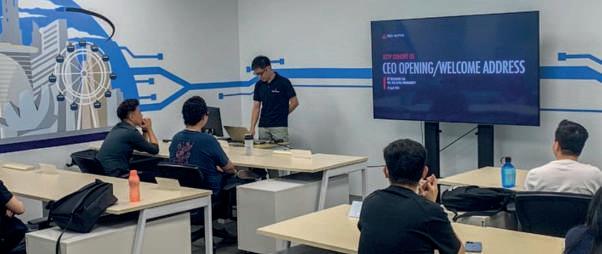
What are the challenges graduates can anticipate through their tech careers?
Fatigue might be one. Most cybersecurity outfits are generally understaffed, so it means that one might take on multiple hats or roles in their teams. But I urge graduates to view such situations positively, as long as the workload is still manageable. It is an excellent opportunity to learn, gain experience, and interact with other stakeholders beyond your primary job scope.
Another challenge comes in developing and embracing the soft skills required to advance in your career. These skills do not come easily or naturally to a majority of technical practitioners, but they are essential. Being good technically will provide the springboard for one’s career in the initial years, but communication, stakeholder management, and leading a team are complementary skill sets that will put graduates in a much better position to take up more senior or management roles as they gain experience.
What advice do you have for graduates about to enter the workforce?
Keep a growth mentality. Strive to work in places where the work is challenging and pushes your limits, where there is space for personal and professional growth, and volunteer for job roles beyond your primary job scope that builds your skills, reputation and experience. Do not be too enamoured with “doing only what you are paid to do” or take up jobs that may offer higher remuneration levels in the short term, but do not enable you to grow personally and professionally.
6 7 8
A piece of advice that has stuck with you throughout your career?
Master your craft, work with your team, and any challenge can be overcome.
ADVICE FOR YOUR CAREER JOURNEY SUTD career guide 2024 57
ALUMNI SPEAKS

My job
My role involves two main components: project management and process improvement. On the project management front, I handle the setup of new programmes and integrate fresh processes for our existing customers. When it comes to process improvement, my focus is on streamlining existing processes and incorporating relevant digital innovations.
How I got my job
I have had a strong interest in Schenker since my penultimate year. Therefore, I actively pursued one of the capstone projects sponsored by Schenker to gain more exposure to their business and culture. The Schenker HR hosted a welcome session for all capstone groups sponsored by the company. It was during this session that I discovered the Management Associate (MA) programme and applied for it. Afterwards, I went through an online assessment, and several rounds of interviews with the hiring managers and HODs before securing the position.
I believe being knowledgeable about the company and the type of talent that they are looking for played a crucial role in securing the job. Therefore, I would highly recommend aspiring applicants to connect with existing employees of the company to gain insights into the traits that the company prefers, and to research about the basics of the company such as its business models and recent advancements.
Yu Wenling
Bachelor of Engineering Systems and Design, Singapore University of Technology and Design, 2021
Senior Executive – Projects
DB Schenker
Recognise that your mindset plays a pivotal role inshaping these changes as either positive or negative experiences.
The highs and lows
My preference for logical processes and dealing with optimisation led me to the supply chain industry. Therefore, I am immensely satisfied to continue leveraging my skills to work with logic, data and technology to continuously improve and optimise the daily processes within the company. Moreover, the prospects for advancing my technical prowess, honing professional expertise, and gaining valuable leadership experiences in my current role serve as a constant source of motivation.
A crucial challenge for my scope would be the stakeholders being resistant to changes, particularly when improvements are implemented for long-term projects where the benefits may not be immediately visible.
My happiest moment at work
I have had the honour to be exposed to many major projects due to my management associate (MA) programme and my current scope as a project manager. Amongst these endeavours, the most memorable project has been my involvement in launching a major customer, an industry leader in their field, as part of the implementation team. It was through this project that I witnessed the beauty of an effective supply chain, and it showcased the seamless collaboration of various functions in the company, working in harmony to support each other and ensure the successful implementation of the program despite the exceptionally short timeframe.
Some advice
A key lesson I have learnt from my two years of experience is the importance of taking initiative. Advocate for the opportunities you wish to be part of and diplomatically express your preferences regarding tasks you would rather avoid.
Moreover, cultivating a growth mindset is paramount. Embrace an open-minded approach towards new technologies and the inevitable changes that you will face. Recognise that your mindset plays a pivotal role in shaping these changes as either positive or negative experiences. By staying adaptable and fostering a mindset geared towards learning and growth, you empower yourself to navigate shifts in the professional landscape with resilience and optimism.
ADVICE FOR YOUR CAREER JOURNEY SUTD career guide 2024 58
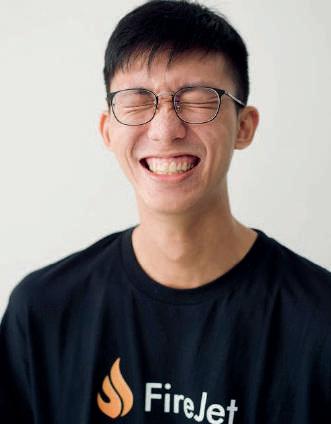
My job
I am currently the technical cofounder of our Figma-to-Code startup, FireJet.
My day-to-day involves implementing new features, architecting the software/ algorithms that will be used in our software, as well as guiding and mentoring our software developers and reviewing their work.
From time to time, I also help on the business development side by discussing technical requirements with potential enterprise clients and checking the technical feasibility of said requirements.
How I started
It is not too challenging to get a job if you hire yourself.
Jokes aside, to start a startup, you need to find someone who shares the same values and goals as you. This will be the most important decision you make because the leading cause for startups failing is co-founder disputes.
Thankfully, SUTD has quite a strong maker culture, so there is seldom a shortage of people who want to build something cool and bring it to the world. For example, my co-founder was my classmate from SUTD and I am very fortunate to be working with such a capable and dependable individual.
Philip Andrew Wee De Wang
Bachelor in Computer Engineering, Singapore University of Technology and Design, 2022
Co-founder FireJet
If you want to be a start-up founder, you should always aim to sell before you build.
The highs and lows
I am extremely passionate about the work I do here at FireJet because we work on cutting-edge of technology.
At the heart of it, we are trying to solve front-end development by automating the process of design to code. This will save developers and companies thousands of hours and help them move their products and software forward even faster.
What makes running FireJet challenging (but yet xciting) is that we are in an extremely competitive space. We are competing with other startups with millions of dollars and established companies worth billions.
My happiest moment at work
I think our biggest achievement is being able to earn revenue. Too many startups in Singapore fail without even making a single dollar.
One of my happiest moments was when we got our first paying customer. Back then, we were still fresh graduates and it was incredibly scary to even ask for people to pay for our product. However, our first customer offered to pay six times the original price we were asking for, just because it was something he needed, which gave us a huge sense of relief and validation.
I remember the day we managed to get that first customer. I printed out the letter of intent signed by the customer and framed it up. Even today, I still have that framed copy of our first paying customer.
Some advice
Starting and running a startup is surprisingly straightforward – there are many reliable resources online, such as Paul Graham’s essays on entrepreneurship and the Y Combinator YouTube channel. The difficulty, however, is following the straightforward advice.
If you want to be a start-up founder, you should always aim to sell before you build. Especially as SUTD students, it is all too common to fall for the trap of building before validating if the idea is something that anyone even wants.
ADVICE FOR YOUR CAREER JOURNEY SUTD career guide 2024 59

My job
As a technical co-founder, I have two primary roles: one as the front-end lead and the second as the co-founder.
My journey as the front-end lead has been quite long. It started from the initial stage where I was the only developer, to hiring our first batch of interns and our first international developer, and eventually having a full team to execute the designs. My main job now revolves around hiring talented individuals, providing guidance to front-end developers and acting as a bridge between other departments in the company.
That mostly covers the operational aspect of my work. In addition to that, as a co-founder, we spend a considerable amount of time strategising how to operate the company. This includes choosing which business ideas to validate, talking to users, strategising fundraising efforts, and working through technical limitations. In simple terms, I work on all the problems that the rest of the company is not focused on.
How I started
How did we start Scratchbac? Personally, I always believed that as a Singaporean living in HDB, we are so socially distant from each other while being so physically close. I felt there was potential to build a more connected community through technology.
I began by programming a Telegram bot that allowed HDB residents to reach out to each other for assistance during the pandemic. To my surprise, people wanted to use the crappy initial version that I built. At the same time, I found three other SUTD mates who shared a similar interest in building a better community through technology. We decided to work together to get more users and see how far we could push this.
Poh Jin Heng Princeton
SUTD CSD 2024
Co-founder Scratchbac
It takes a certain thirst for adventure to attempt a start-up.
The highs and lows
Although startup life is tough, there are indeed many wonderful moments that I cherish. One of them is hearing positive feedback from our users. I remember one user even wrote an extensive blog post about how she benefited from the platform. That warmed my heart.
Another great aspect is the late-night banter we engage in to keep each other motivated and focused on shipping our product. Seeing everyone coming together, especially during challenging times, to make things work is quite an experience. Ultimately, the relationships I have forged along the way bring me the most joy.
There are many low points, namely experiencing app crashes, managing low cashflow of the company, having uncertainties about the future, encountering arguments among the cofounders, hiring the wrong people and building the wrong product.
My happiest moment at work
My happiest moment at work is on the first day. When I received my first user to use my MVP, I was beyond happy!
Some advice
It takes a certain thirst for adventure to attempt a start-up. The journey ahead will be tough. You have only your cofounders and employees to experience them with you. Choose wisely and appreciate them!
ADVICE FOR YOUR CAREER JOURNEY SUTD career guide 2024 60












Adulting doesn’t mean giving up on your favourite cereal.

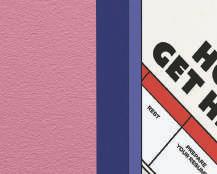
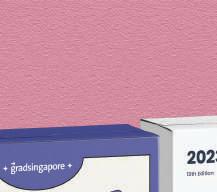
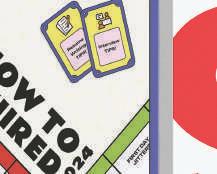
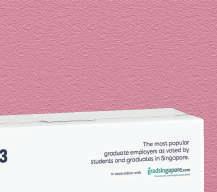

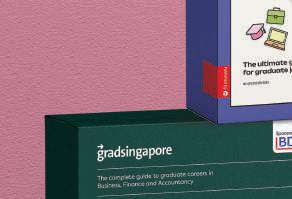
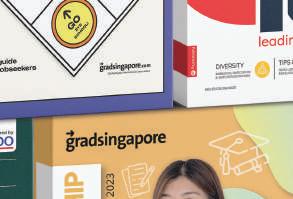






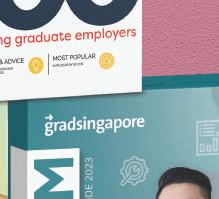







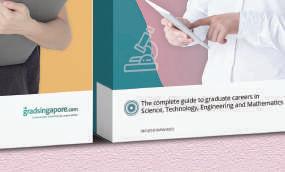














 right from your breakfast table.
right from your breakfast table.
Create your free account now at
THE GLOSSARY OF CAREER PATHWAYS
The list of career sectors continues to grow, and so do your opportunities.
Career Sectors
Architecture and Engineering
Arts and Entertainment
Banking and Financial
Business and Management Consultancy
Communications and Media
Engineering and Manufacturing
E-commerce
Fast-Moving Consumer Goods (FMCG)
Healthcare
IT and Technology
Logistics, Transport, and Supply Chain
Public administration and Defence
Scientific Research and Development
Architecture and Engineering
This industry is home to architects and planning professionals responsible for developing new structures and constructing functional, aesthetic and structurally sound buildings. Graduates who are passionate about this industry should be detail-oriented and have strong analytical-thinking skills. It is also essential to have a firm understanding of design and creativity. Additionally, those pursuing a career in this field should be adept in mathematics and physics and be prepared to obtain a Master’s degree in the long run.
• Architect, Landscape Architect
• Civil Engineer
• Biomedical Engineer
• Sustainable Designer
Arts and Entertainment
As an arts professional, you will focus on improving lives through the sharing of arts, culture, and self-expression. Here you will find roles in traditional media such as television or radio, as well as theatre, film, and music. Change is the norm in this industry, and graduates looking to be a part of this career path should be adaptable and flexible. Multitasking and time management are also essential skills, especially due to its fast-paced and unpredictable nature. Depending on the role you choose to pursue, it might require an industryspecific skill set. For instance, you might need to attend a film or music course to understand its technicalities.
A key aspect of this career path that graduates should take note of is that they should be prepared and willing to take entry-level work. This industry is highly competitive and usually requires you to work your way up to more advanced positions. As such, networking is paramount, as knowing the right people might help you land your next big role or job opportunity.
• Musician or Composer
• Animator or Visual Effects Artist
• Scriptwriter
• Actor
Banking and Financial Services
This sector generally consists of global investment banks that offer a range of services from corporate finance to trading. However, graduates can also consider careers in more specific areas such as asset management and private banking.
In this competitive sector, internship experience is what sets you apart. It is also important to have relevant extracurricular activities listed in your resume, such as finance societies in universities, to showcase your interest. Graduates are also encouraged to stay updated on the latest news and developments in the sector, as well as attend events hosted by finance employers to understand the type of employees they are looking for.
Front Office
• Work directly with clients and handle the needs of the bank itself
• Positions in sales, marketing, pretrade, and execution activities
• Graduates should have strong interpersonal and negotiation skills
Middle Office
• Work directly with the front office
• Roles include risk management, compliance, and finance control
• Assess risks, track and calculate profits and losses
Back Office
• Does not require you to be directly involved in revenue generation
• Provides vital support and administrative assistance to the other two offices
• Positions such as IT, operations, HR, and accounting
ADVICE FOR YOUR CAREER JOURNEY SUTD career guide 2024 62
Business and Management Consultancy
Consultants in this career sector are responsible for using their business and financial expertise to assist managers or executives in maximising their business’s profitability. Their duties include reviewing financial statements and operational data, meeting with department heads or company employees to understand the company’s needs, and compiling reports that outline a strategy for enhancing profitability.
Management consultants usually work for consultancy firms or as freelance professionals. Graduates interested in pursuing this career path should have strong time management skills to meet tight deadlines, a balance of communication and effective listening skills, and keen thinking and analytical skills to interpret complex information. Additionally, a degree in business, economics, or finance is beneficial.
• Human Resources Consultant
• Financial Advisory Consultant
• Management Consultant
• Internal Consultant
Communications and Media
The communications and media sector is recognised as one of the broadest fields encompassing many different careers — marketing, public relations, journalism — each with its own variety of roles and responsibilities. In order to work in this sector, graduates should develop a wide range of skills to supplement and enhance their ability to express ideas. For example, graduates can learn image editing and video content creation alongside persuasive writing in order to communicate more effectively. Establishing a strong set of skills will ultimately set them apart in the industry.
Additionally, developing a digital presence and personal branding is important within this sector. It is a great way to showcase one’s portfolio to potential employers, and highlight one’s interests. Graduates should also remember that there are many different areas in which they can pursue their career, hence, leaning into their interests is one way that can help them decide where to go next.
• Broadcast or Digital Journalist
• Advertising
• Public Relations
• Social Media Manager
• Content Strategist
Engineering and Manufacturing
A degree in engineering does not necessarily equate to being an engineer. Apart from key employment sectors such as engineering consultancies, research and development (R&D), and defence, many engineers find a place in commercial management and consulting roles in a variety of organisations.
Aerospace
• This sector includes aircraft manufacturers like Airbus and Boeing, as well as engine and system contractors, such as General Electric and Rolls-Royce
• Singapore’s industry revolves around aerospace maintenance, repair and overhaul (MRO)
• Work with high-end technology and accomplish projects from start to finish
Defence
• Opportunities to work with technologically-advanced projects; some potentially being further ahead than what is publicly available and a wide range of products, systems, and services that support Singapore’s Armed Forces
• Nearly all the major employers in Singapore’s defence sector are in the public sector or directly linked with the government
Lighting
• In-charge of setting up, rigging, operating, and maintaining lighting systems and electrical effects for shows in the art and entertainment scene; both indoors and outdoors
• Graduates need to demonstrate technical and creative skills
• Work closely with other staff members such as sound engineers and lighting designers
Manufacturing
• Converting raw materials into new, finished products — from food and drink to medical supplies, and even vehicles — to drive the economy forward
• Areas of work include research, design development, quality assurance of products
• Engineers can also apply their skills in other roles such as marketing, supply chain management, and sales
Oil and Gas
• Aside from BP, ExxonMobil, and Shell, there are national and independent oil companies in Singapore
• Some companies might offer specialised services such as drilling and subsea operations
• Engineering contractors design and build oil rigs, refineries, or drilling platforms
Product Design
• Seeks out opportunities for new products or determines whether an existing one can better fit the needs of consumers and the market
• Requires significant cooperation with others; from fellow engineers to stakeholders, and marketing teams
• Graduates should take note that interpersonal skills, adaptability, good time-management, and design creativity are vital for success
Robotics
• Automation engineers build and maintain robots that have brought convenience to society
• Engineers will put in hours of planning and research prior to the robot’s debut in the market. This includes working on its functions, design, and the development of new technologies
Sound Engineer
• Tackle technical aspects of sound and audio by working with sound equipment, ensuring the quality of recordings and audio tracks adheres to standards
• Responsibilities vary from maintaining audio balances at live performances to recording and mastering audio tracks
• Graduates interested in this field need the manual dexterity to identify and adjust minor details in sound with split-second timing. They should also be good at problem-solving and possess good communication skills
• Requires the usage of sound editing software and equipment, thus, any experience with these is a big plus
ADVICE FOR YOUR CAREER JOURNEY SUTD career guide 2024 63
E-Commerce
The rise of online businesses leaves this sector focused on catering to the needs of consumers through developing unique products and services to increase their market shares. Key skills required to succeed in the industry include business analysis, programming, and knowledge of networks and applications.
Interested graduates will need to understand the consumer’s mindset and how these unorthodox businesses operate. Staying adaptable, dedicated, and inquisitive is the best way to thrive in an industry where trends are constantly changing.
• Customer Service Representative
• Supply Chain Management
• Software Engineer
• Information Systems Technician
Fast-Moving Consumer Goods (FMCG)
The FMCG industry revolves around products with a quick shelf turnover. These include cosmetics, processed food, and plastic goods. There is a range of responsibilities within this sector, so employers are open to hiring graduates from a variety of disciplines such as management, research and development, sales, and more.
Management
• Industry’s profits stem from selling high quantities of low-cost goods, which means logistical challenges can be daunting
• A manager’s role is to ensure that issues are swiftly addressed to maintain the company’s profitability
• The industry is fast-paced and can be stressful
• Graduates should possess a strong attitude and be able to keep up with the competitive nature of consumer product companies
• Employers also look out for candidates who are adaptable, have strong problem-solving abilities, and good commercial awareness
Research and Development
• Specifically, in FMCG, R&D fuses business and science
• Graduates can look forward to turning concepts into reality according to consumer demand by refining an existing product or creating a new one entirely
• Jobs in this sector will require specific qualifications, preferably in STEM fields
• Graduates should be highly inquisitive and willing to seek out in-depth knowledge in order to keep up with and improve consumer demands
Sales and Commercial
• Also known as ‘customer development’, relationship-building and maintenance is key
• Representatives from FMCG companies work with retail outlets to ensure that products are sold with the highest profits possible by maximising their appeal
• Job positions are generally open to graduates of all disciplines, however, some competencies are still preferred. These include good leadership skills, communication, and negotiation skills.
Healthcare
The healthcare sector is constantly in demand. Whether it is healthcare professionals tending to the ill, or engineers within the sector, there are plenty of opportunities for interested graduates to choose from.
Biomedical Engineer
• Multi-faceted role
• Investigates how the body operates, identifies gaps in healthcare and other issues
• Utilises expertise in maths, engineering and biology to design, build, and maintain medical equipment
• Occasionally, employees in this role develop drugs or even artificial body parts to treat medical ailments and conditions
• Conduct and compile research for publication
• Graduates should have a good grasp of research methods and techniques, as well as strong interpersonal skills
Medical Product or Equipment Designer
• Design new medical products and equipment from start to finish, as well as produce blueprints prior to producing and testing new prototypes
• Responsible for outlining guidelines and procedures for products to be adhered to during the full-scale production process
• Employers hail from medical organisations, manufacturing companies, and private consulting firms which operate in design and medical tech industries
• Graduates may also find employment in high-tech R&D laboratories as well
Medical Technologist
• Also known as clinical laboratory technologists
• Duties involve running tests and analysing results on bodily fluids such as blood
• Usually employed by hospitals or independent laboratories working with high-end equipment
• Often working alongside physicians or laboratory directors to investigate outpatient data after test results are analysed
• Responsibilities also include conducting and reviewing in-depth analysis of microscopic, immunologic, biologic, and chemical tests
• The role also requires the preparation of tissue samples, establishing and monitoring of programmes for data accuracy, examining the slides of bodily fluids, and cross-matching blood samples for transfusion
Pharmaceutical Technologist
• Involved in developing and manufacturing pharmaceuticals and other related therapies
• Multiple specialisations in this area: product delivery, design quality, and more
• Engineers might also take on other aspects of production such as packaging, labelling, quality assurance, and regulation
• Spend most of the time in research facilities and manufacturing plants
• Employers range from pharmaceutical companies and universities to agencies and national laboratories
ADVICE FOR YOUR CAREER JOURNEY SUTD career guide 2024 64
IT and Technology
IT spans multiple industries in some shape or form. It could be a core part or as a service provided to consumers and other businesses. This has resulted in a large, diverse range of work opportunities - from highly technical roles as a software engineer to general areas of work such as sales and marketing.
Artificial Intelligence (AI)
• Creation of intelligent machines and/ or services that operate and react as humans would
• Industry requires graduates to have strong foundations in STEM subjects, logic, and an engineering perspective due to its technical nature
• AI specialists responsible for designing, maintaining, and repairing technology and software programmes
• Requires an analytical thought process and an ability to solve and troubleshoot issues while remaining cost-efficient
• Good foresight for technological innovations is also useful for keeping companies competitive in the industry
• AI careers can be found across education and healthcare facilities, and private companies
• Roles include algorithmic
• specialists, computer scientists, and engineering consultants.
Cybersecurity
• Responsible for preventing data theft, damage, and hacking
• Encompasses technology, processes, and practice to protect networks and machines alike
• Multiple options and specialisations such as operations, systems engineering, or even architecture and testing
• Graduates need inquisitiveness and good communication skills to translate technical terms into layman speak
• Must be willing to search and identify security gaps as well as come up with solutions to resolve them
Programmer
• A strong understanding and knowhow are required, with the ability to create functional and clean code.
• Mostly solo work, but on occasion might work alongside software developers to create products
• Graduates will work with a variety of programming languages - from Visual Basic (.NET) to C++ to write all kinds of software programmes
• Tasked to update existing codes as well as create new ones, while ensuring codes are free from syntax errors and bugs
• Requires a strong aptitude for maths
• Encouraged to hone organisational skills, time and project management to do well in this sector
• A sharp eye is also extremely useful due to the nature of coding
Full-Stack Developer
• Well-versed in both front and backend programming
• Responsible for handling the work of databases and servers, as well as front-end architecture
• Assist in conceiving user interactions on web pages and create servers and databases for functionality
• Graduates can choose to focus on front-end duties, UX/UI development, or provide support as a back-end developer
• Roles require a strong organisational and problem-solving skills, a comprehensive technical portfolio, experience in programming languages such as Python and Ruby, in addition to a computer science degree
Logistics, Transport, and Supply Chain
This sector, essentially the backbone of most industries, is responsible for maintaining the world’s productivity. It involves the timely global transportation of goods and services, which is crucial.
Logistics involves the integration of parts in the supply chain management, primarily in transport, stock control, and warehousing. Those looking to join the industry can find themselves using cutting-edge technology such as the Internet of Things (IoT), robotics, and AI. Some job responsibilities include setting strategies, planning projects, negotiating with contractors, and monitoring the processes.
• Procurement Manager
• Demand Planning Analyst
• Distribution Centre Supervisor
• Supply Chain Consultant
ADVICE FOR YOUR CAREER JOURNEY SUTD career guide 2024 65
Public Administration and Defence
This broad sector includes many major organisations. This sector encompasses the civil service, its affiliated agencies, non-departmental public bodies, and other governmental organisations. Grassroots communities such as teachers in state education, social workers, and police departments fall under this umbrella too.
The Civil Service
• Comprises of the central governing bodies
• Helps ministers devise and efficiently execute government policies
• Organised into ministries and statutory boards, and are in charge of one aspect of Singapore such as healthcare, education and manpower
• The Public Service Division (PSD) guides the direction of HR policies in the civil service by developing frameworks for various ministries
• Cultivates and maintains the quality of civil workers as well as proposes solutions and platforms for strategic interdepartmental issues and discussions
• Individual ministries accept applicants from graduates; however, recruitment practices differ depending on function and ministry
Armed Forces
• Careers are divided into three distinctive branches - the Singapore Armed Forces (SAF), Republic of Singapore Air Force, and the Republic of Singapore Navy
• Roles vary from combatants or soldiers to non-uniformed positions
• These roles include SAF’s R&D department and DSO National Laboratories to assist with improving Singapore’s defence capabilities
The Home Team
• Falls under the purview of the Ministry of Home Affairs
• They are responsible for Singapore’s public security and also function as emergency response units.
• Singapore Police Force (SPF) offers both uniformed and civilian roles; the former undergoing practical training and dealing with street duties with the occasional desk work, while the latter is more specialised. These include roles as crime scene specialists, forensic examiners, and commercial affairs officers
• Other examples include the Civil Defence Force (in charge of fire and emergency rescue), the Narcotics Bureau (Singapore’s primary drug enforcement agency), and the Immigration and Checkpoints Authority (oversees Singapore’s borders and immigration matters)
• These agencies recruit graduates to fill both uniformed and civilian roles though responsibilities may differ depending on the position
Scientific Research and Development
Scientists in this sector are primarily responsible for designing, executing, and analysing data from controlled laboratory-based experiments and trials. These experiments and trials can cover a range of topics, from aerospace and engineering to medical research. Research scientists tend to focus more on specialised topics within the genre, such as machine learning or stem cell research. Employers include government laboratories, environmental agencies, universities, and private research bodies. This role requires strong academic background, as well as a relevant postgraduate qualification (such as a PhD or a research-based MSc). Prior experience with post-doctoral research and/ or laboratory work will put you at an advantage, especially if you are looking for an academic post.
• Research Analyst
• Research Chemist
• R&D Engineer
• Lead Research Scientist

ADVICE FOR YOUR CAREER JOURNEY SUTD career guide 2024 66
JOBS AND INTERNSHIPS
LEADING


BDO LLP
600 North Bridge Road, #23-01, Parkview Square, Singapore 188778
TEL (+65) 6828 9118
WEB www.bdo.com.sg/en-gb/careers
EMAIL career@bdo.com.sg
LOCATION(S)
• Singapore
• International – BDO’s global network extends across 164 countries and territories
BUSINESS FACTS
Established in 1972 and a member firm of BDO International since 1979, we offer a full range of services including audit, tax, business advisory and cybersecurity.
Our clients are from most fields of business in Singapore and include subsidiaries of multinational corporations, and public and private companies operating in diverse industries, including transportation and publishing.
Some of our clients are well-known, while many are medium-sized emerging businesses. Our size is at its optimum, it is large enough to enable us to provide the full range of world-class services, and at the same time, allows clients to benefit from our breadth and depth of expertise as the world’s fifth largest accounting network.
Simply, our services begin with your needs. Whether you are a start-up or an established enterprise looking to take the next step up, we are well-equipped to assist you from ground level to the highest stratosphere of success
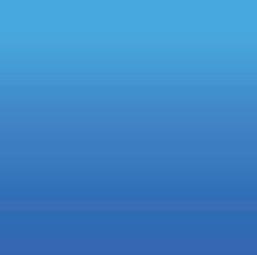

@BDOSingapore
@bdosg
@bdo-singapore
@BDO_Singapore
JOB ROLES
• Accounting
• Business Administration
• Finance
CAREER SECTOR(S)
• Accountancy and Financial Management
• Consulting
APPLICATION PROCEDURE(S)
If you believe you have the right values and attitude in wanting to be part of our big BDO family, send in your detailed resume and a recent photograph to career@bdo.com.sg
APPLICATION PERIOD(S)
Graduate jobs: Associate Position - (Audit & Assurance), (Tax Advisory), (Accounting & Payroll), (Management Consulting), (Corporate Advisory), (Restructuring & Forensics), (Risk Advisory Services-Internal Audit) - All year round
Internships: Internship Positions - (Audit & Assurance), (Tax Advisory), (Accounting), (Management Consulting), (Corporate Advisory), (Restructuring & Forensics) - All year round
JOBS AND INTERNSHIPS SUTD career guide 2024 67
EMPLOYERS
VACANCIES
INTERNSHIPS
Employers BDO LLP [11]67 DSO National Laboratories [69]68 Defence Science and Technology Agency (DSTA) [IFC]70 Income [45]71 OCBC Bank [73]72
WITH
AND
WHO WANT TO HEAR FROM YOU.

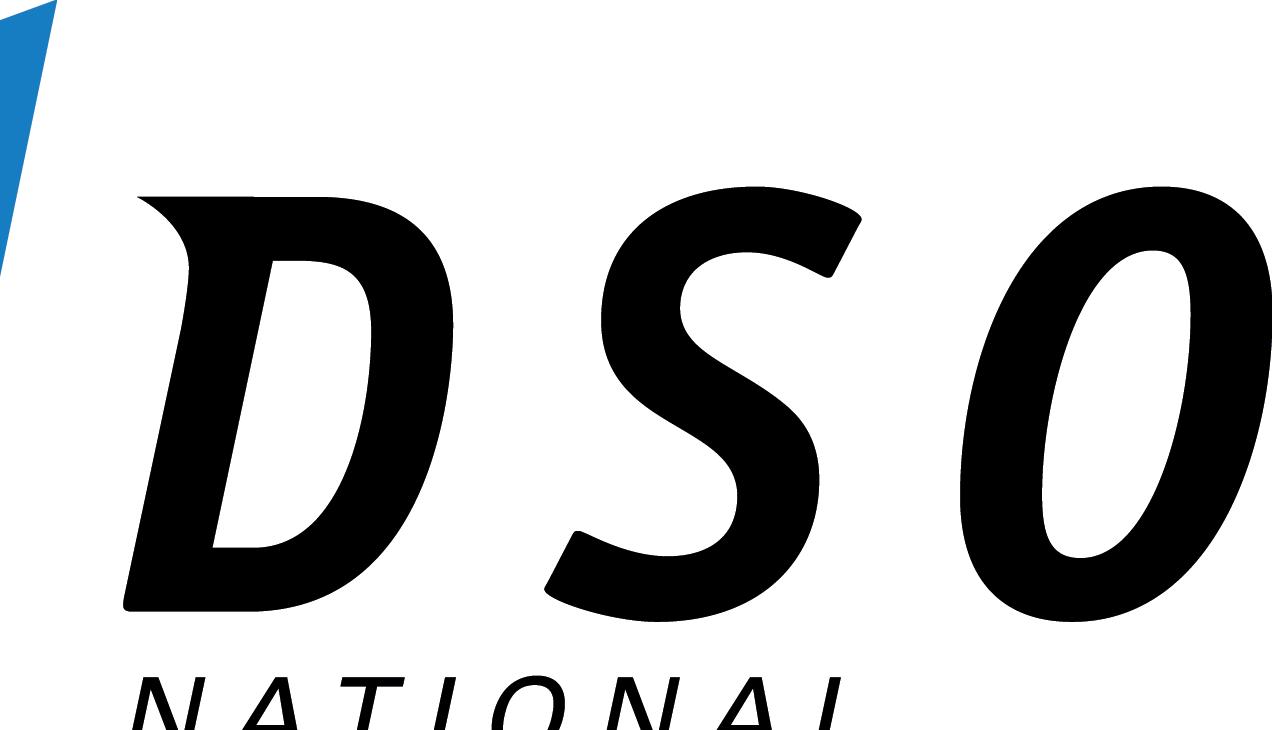


DSO NATIONAL LABORATORIES
12 Science Park Drive, Singapore 118225
TEL (+65) 6776 2255
WEB https://www.dso.org.sg/ EMAIL campusrelations@dso.org.sg
LOCATION(S)
• Singapore
BUSINESS FACTS
DSO National Laboratories is Singapore’s largest defence research and development organisation with the critical mission of developing technological surprises to sharpen the cutting edge of Singapore’s defence capabilities. Established in 1972, DSO has more than 1,600 defence engineers and scientists today pushing the boundaries of science and technology and transforming ideas into reality across the domains of air, land, sea, space, and cyberspace. Career or internship, this is where you can make a real impact and shape the future of defence.
Meaningful, not menial
Not only will you be learning from the best mentors in their respective fields, you will also be applying your newly-acquired knowledge on actual projects and make a real difference in the world!


@dso.sg
@discoverdso
@DSO National Laboratories
Tailored, not typical
We want to ensure every intern gets the most out of their internship. Every DSO Internship is specifically designed for the individual, tailored to your skills and learning requirements, so you get an enriching internship experience.
Job offer, not job reference
We acknowledge the talent our DSO interns possess. That is why so many of our current staff are former interns, and we remain committed to tendering more job offers moving forward. At DSO, today an intern, tomorrow an employee.
CAREER SECTOR(S)
• Engineering, Design and Manufacturing
• IT and Technology
• Scientific Research and Development

MY JOB
CONTINUOUS LEARNING FOR BETTER DEFENCES
NAME: Elizabeth Seto
DEGREE: Bachelor of Engineering in Engineering Product Development, SUTD, 2015
ROLE: Senior Aerodynamics Research Engineer
EMPLOYER: DSO National Laboratories
As an aerodynamics engineer, I work on designing and analysing aerodynamics of Unmanned Aerial Vehicles (UAVs). This is done through computational fluid dynamics, wind tunnel testing and flight testing. I work closely with colleagues from various disciplines to develop and improve systems.
HOW I GOT MY JOB
I was always interested in research and development (R&D) since young. After taking research projects under SUTD’s Undergraduate Research Opportunities Programme (UROPs), I knew I wanted to be a research engineer. I was intrigued by the possibilities at DSO after fellow schoolmates raved about their fulfilling internship and decided to apply for a full-time position with DSO. The job selection process consisted of two interviews, including one in the lab setting.
THE HIGHS AND LOWS
Defence R&D is an exciting and fulfilling career where we not only get to contribute to the nation’s defence and security, but also be at the forefront of technologies when we research on emerging technologies and enhance existing systems. This can be challenging as not every technology is easily implementable, but it also creates space for innovation and out-of-the box solutions.
MY HAPPIEST MOMENT AT WORK
Research is a continuous learning journey as we are always on the pursuit of improving what has been developed. This means that we are often trying out something that has not been tested with our systems before. So, it is memorable whenever my team and I have a successful flight trial and we get to see our efforts translated into something tangible.
In addition to technical work, I was given the opportunity to play a key role in organising the Singapore Amazing Flying Machine Competition (SAFMC) in 2023. It was fulfilling to see students from primary to tertiary being interested in technology. Hopefully, these will sow the seeds of interest in the young to consider an R&D career in future. It was also extra meaningful that the award ceremony was held back in my alma mater.
SOME ADVICE
Use the time in university to explore; through undertaking UROPs, Fifth Row or internships. The exposure may help you discover your interests and whether an R&D career is suitable.
JOBS AND INTERNSHIPS SUTD career guide 2024 68



























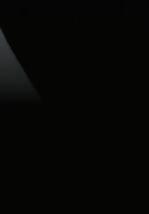

You are solving di cult problems for the nation Join us and make a di erence www.dso.org.sg
DEFENCE SCIENCE AND TECHNOLOGY AGENCY (DSTA)
1 Depot Road, Singapore 109679
WEB https://www.dsta.gov.sg
EMAIL internship@dsta.gov.sg hrjobs@dsta.gov.sg
LOCATION
• Singapore
BUSINESS FACTS
The Defence Science and Technology Agency (DSTA) brings you to the forefront of engineering, digital transformation and cybersecurity. From working on software development and systems integration to unmanned technologies and artificial intelligience, you can make an impact on Singapore’s defence. Achieve your fullest potential with opportunities to build your technical expertise and hone your competencies in diverse domains. You can also expect an immersive learning experience, where you will work with bright minds and collaborate with global industry experts.
DSTA is recognised as one of the top 10 employers in the Engineering and IT sector, where our engineers and IT professionals work alongside procurement specialists to deliver state-of-the-art capabilities for Singapore’s peace and security.
Internship opportunities and a meaningful career await you!

MY JOB


@SingaporeDSTA
@SingaporeDSTA
@DSTA
DEGREE DISCIPLINES
Open to all disciplines. Enjoy a myriad of opportunities to work in diverse domains such as engineering, digital, procurement and corporate departments
CAREER SECTORS
• Engineering, Design and Manufacturing
• IT and Technology
• Public Sector
APPLICATION PROCEDURES
Learn more about DSTA careers and internships at https://dsta.gov.sg. Email us at hrjobs@dsta.gov.sg or internship@dsta.gov.sg for any enquiries pertaining to careers or internship
APPLICATION PERIODS
Application for jobs and internships are accepted throughout the year
VENTURING BEYOND CURRICULUM
NAME: Lewin Sim
DEGREE: Bachelor of Engineering Product Development, SUTD, 2021
ROLE: Senior Engineer, Naval Systems
EMPLOYER: Defence Science and Technology Agency (DSTA)
I work with the Republic of Singapore Navy (RSN) on naval combat systems integration. I explore new technologies to ensure that the RSN is well-equipped to tackle new threats and adversaries to meet Singapore’s defence and national security needs. I also review naval system designs and push boundaries by incorporating technologies into the designs before validating the performances of these new systems on board.
HOW I GOT MY JOB
I applied to DSTA through a virtual career fair. I was excited about the prospect of using my technical skills and knowledge for real-world defence applications. I believe what set me apart was my hands-on engineering experience from the numerous product-based projects I completed in school and during internships. My desire to contribute to the defence sector also helped a lot.
NEVER A DULL MOMENT
I love that every day at DSTA is different. One day I could be conducting a system trial at a test site, and on another, I could be on board an RSN vessel troubleshooting critical systems. DSTA also provides me with many opportunities to widen my horizons, such as overseas work trips for technical conferences and meetings.
At DSTA, we need to constantly innovate and deploy new technologies to ensure that the Singapore Armed Forces maintains the technological edge. I also enjoy the strong camaraderie and support in my team and the organisation at large.
MY HAPPIEST MOMENT AT WORK
My happiest moment was when I successfully conducted integration testing and acceptance for a training simulator onboard an RSN ship. As the system was already operational, I worked closely with fellow colleagues to solve technical issues and identify software bugs within a tight integration schedule. It gave me great satisfaction seeing the system went live after numerous challenges, and knowing that my team and I made a positive impact for the RSN.
TIPS FOR MY JUNIORS
Always strive to explore topics outside of your school curriculum. Attend as many activities as you can, such as tech learning festivals. One example would be DSTA’s BrainHack where you can be exposed to a range of topics like space technologies, fake news detection, extended reality and more.
Lastly, do not be afraid to ask questions and reach out to others for guidance. While at DSTA, I have learnt so much from the many experienced colleagues who are always willing to share.
JOBS AND INTERNSHIPS SUTD career guide 2024 70

INCOME INSURANCE LIMITED
WEB https://www.income.com.sg/careers

@incomeinsurance
@incomeinsurance
@incomeinsurance
LOCATION(s)
• Singapore
BUSINESS FACTS
Income Insurance Limited (Income Insurance) is one of the leading composite insurers in Singapore, offering life, health and general insurance. Established in Singapore to plug a social need for insurance in 1970, Income Insurance continues to put people first by serving the protection, savings and investment needs of individuals, families and businesses today. Its lifestyle-centric and data-driven approach to insurance and financial planning puts the company at the forefront of innovative solutions that empowers the people it serves with better financial well-being.
Additionally, Income Insurance is committed to being a responsible business that champions the environment and builds stronger communities by supporting financial inclusion, education for youths-in-need and seniors’ wellbeing.
For more information, please visit www.income.com.sg



CAREER SECTOR(S)
• Insurance and Risk Management
DEGREE DISCIPLINES
Open to all disciplines
SELECTION PROCESS
Step 1: Online application
Step 2: Interview(s)
Step 3: Offer























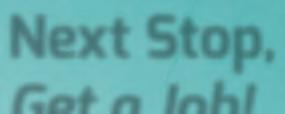












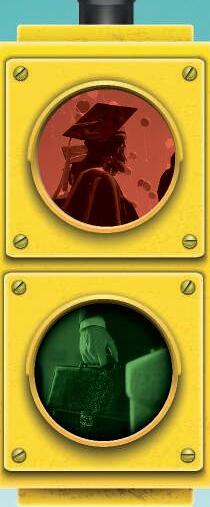











































JOBS AND INTERNSHIPS SUTD career guide 2024 71
Search for graduate jobs and internships today. Next Stop, Get a Job!
OCBC
OCBC Centre, 65 Chulia Street, Singapore 049513
TEL 1800 363 3333
WEB www.ocbc.com/group/careers
EMAIL careers@ocbc.com
LOCATIONS
• Singapore
• International – Australia, China, Hong Kong SAR, Indonesia, Japan, Myanmar, South Korea, Taiwan, Thailand, United Kingdom, United States, Vietnam
BUSINESS FACTS
Purposeful work. A friendly supportive team. Industry pioneering challenges. An open learning culture. And commitment to creating positive environmental and economic impact. Build the future of financial services with the longest established Singapore bank.
Transform banking with a people-first culture Work with great people who make each other better. Take your talent and ambition as far as you like. And mix and match the right benefits for your lifestyle. We might be on a journey of transformation. But banking will always be first and foremost about people and relationships.
Purpose driven, values led, people focused
It’s not just what you do. It’s the way you do it too. We exist to unlock opportunity for people. That starts with unlocking opportunity for you.

MY JOB

@OCBCCareers
@OCBC
Always on, future ready open learning
Learn what you like, when you like, at your own pace. At OCBC you’re in control of your career growth and development now and forever. Your wellbeing served your way.
Choose your benefits to fit your lifestyle and preference perfectly. Mix and match from an awardwinning suit of holistic flexible benefits.
We are hiring for:
• Graduate Talent Programme 2024
• FRANKpreneurship Internship
• STEM @ OCBC Internship
• Business Development Managers
• Customer Service Executives
• BizInteract Service Managers
• Mortgage Specialists
• Personal Financial Consultants
• Tertiary Internship
DEGREE DISCIPLINES
• Open to all disciplines
EMBRACE THE EXPERIENCE, EMBRACE GROWTH
NAME: Cherina Yee Wang Sui
CAREER SECTOR(S)
• Banking and Financial Services
• Investment Banking and Investment Management
APPLICATION PROCEDURE
Apply online at www.ocbc.com/group/careers
APPLICATION PERIOD(S)
Graduate jobs: Graduate Talent Programme 2024:
Applications opened in October 2023
Internships: FRANKpreneurship: November – February
STEM @ OCBC: November – February
Ad-hoc Internships:
• 6 months (Jan to Jun/Jul to Dec)
• 3 months (May to Aug)
SELECTION PROCESS
Step 1: Online application
Step 2: Interviews
Step 3: Shortlisting
DEGREE: Bachelor of Engineering (Engineering Systems and Design), SUTD, 2021
ROLE: Assistant Manager
EMPLOYER: OCBC
As part of OCBC’s Graduate Talent Programme under Group Operations and Technology (GO&T), I am fortunate to have the opportunity to rotate across different departments.This journey spanning from customer-facing roles to backoffice operations allow me to explore my interests and provide me with a holistic understanding of the banking industry.
Currently, I am in my Trade Finance Operations rotation. I collaborate closely with cross-functional team members to analyse their workflows and systems to identify operational gaps. I also engage with multiple stakeholders to drive the development and implementation of solutions, contributing to an advancement of our operational efficiency.
HOW I GOT MY JOB
The selection process comprised of several interview rounds, with the case study session as the defining stage. In a small team, we were tasked with devising strategies to address a business challenge. This process allowed us to explore a diverse range of ideas and methodologically streamline them, like the problem scoping and solving process we are familiar with in SUTD. Through working together as a team to outline a plan and propose solutions, I believe my critical thinking skills and ability to work harmoniously in a group setting landed me the role.
THE HIGHS AND LOWS
Being involved in new initiatives and recognising the impact my contributions can have on processing time fills me with a sense of purpose. The continuous support and guidance from my supervisors also motivatesme to do more meaningful work.
While my transition from an engineering background to the financial sector initially presented challenges, the nurturing environment has played a pivotal role. OCBC’s commitment to bridging knowledge gaps through banking courses and personalised strength coaching has significantly contributed to my growth and proficiency in this field.
MY HAPPIEST MOMENT AT WORK
Definitely my Graduate Talent batch coming together to put on a hip-hop and funk performance at our Dinner and Dance (D&D). The shared energy and camaraderie during rehearsals brought us closer. Beyond work, celebrating occasions like the Mid-Autumn Festival with lantern painting and riddle solving and initiating board game sessions, creating memories. This strong and supportive work culture makes each day enjoyable.
SOME ADVICE
Embrace the learning journey ahead and approach each experience as a chance for personal and professional growth. Keep an open mind, dare to dream big, and venture into unchartered areas, knowing that there are many opportunities to enhance existing processes in today’s fast evolving world. As you navigate this path, treasure the bonds you form with others, as they not only provide valuable support and guidance but also create a network that can lead you to success.
JOBS AND INTERNSHIPS SUTD career guide 2024 72



Discover Beyond Your Ambitions



Join the OCBC Graduate Talent Programme Your first step towards the future of banking. Unlock a future beyond your limits and see where your talent takes you. Oppor tunit y star ts here

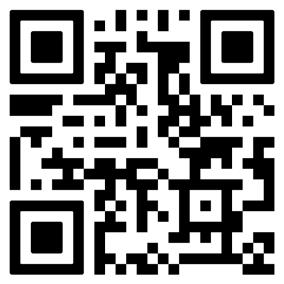




Scan QR code to apply now















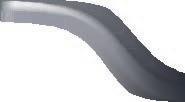




































































































































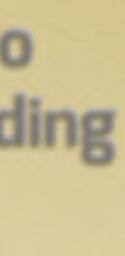















































Be in the loop and subscribe to our newsletters to receive the best career tips. Let us do the grinding for you. Create your free account now at

















































 Angelvin Parma Head, Career Development Centre
Angelvin Parma Head, Career Development Centre
































































 Devanshi Joshi
Devanshi Joshi



























































































 right from your breakfast table.
right from your breakfast table.
































































































































































































































